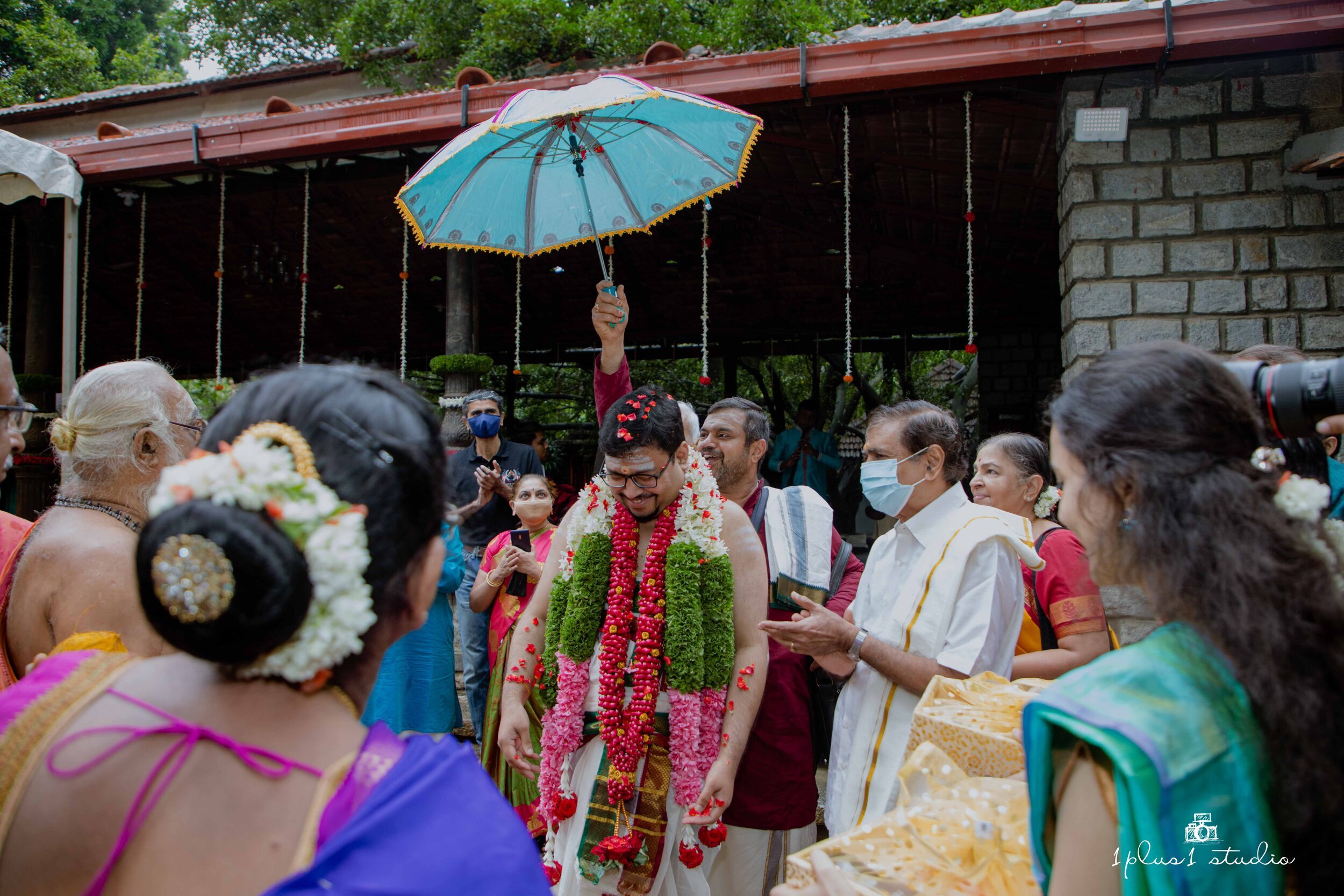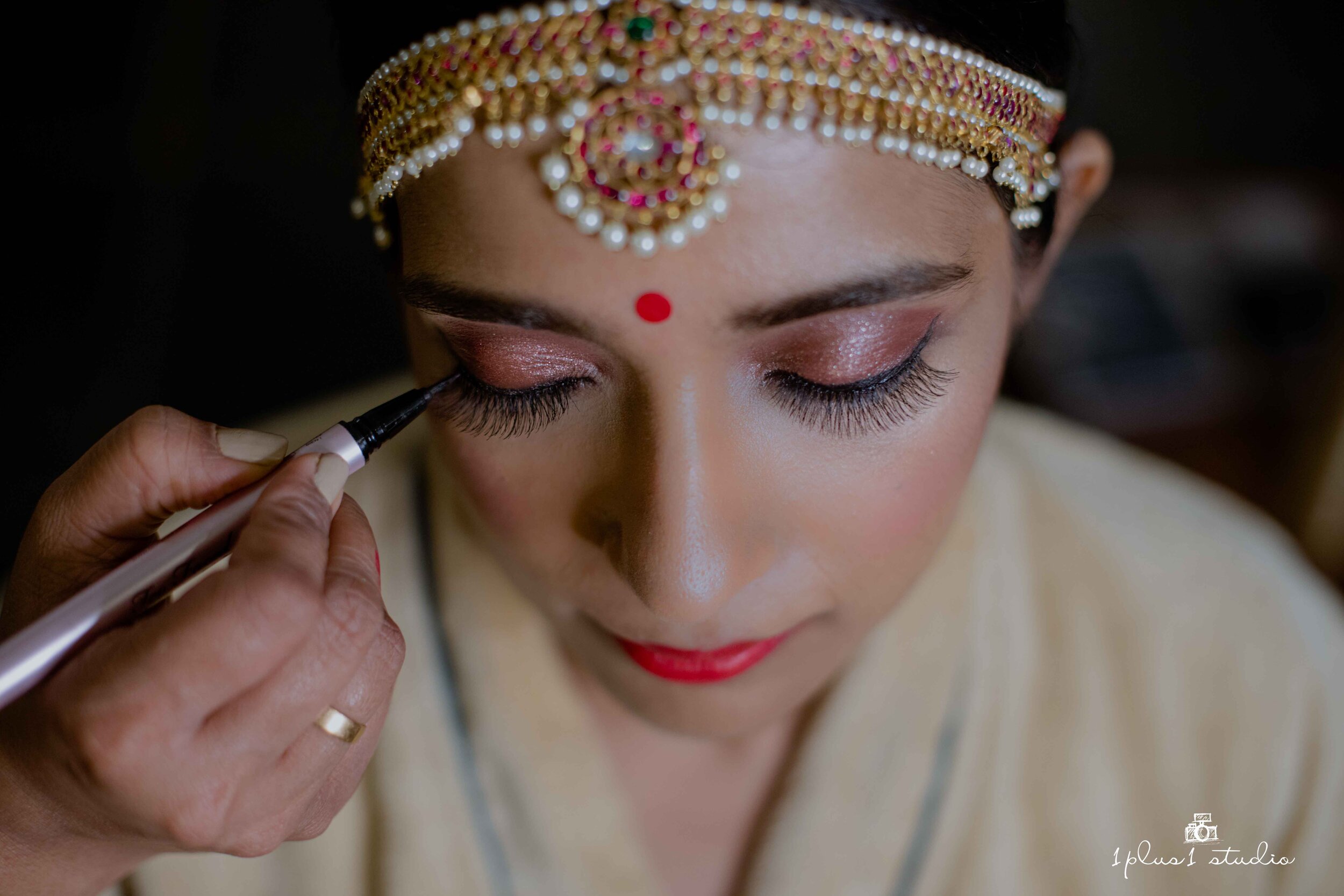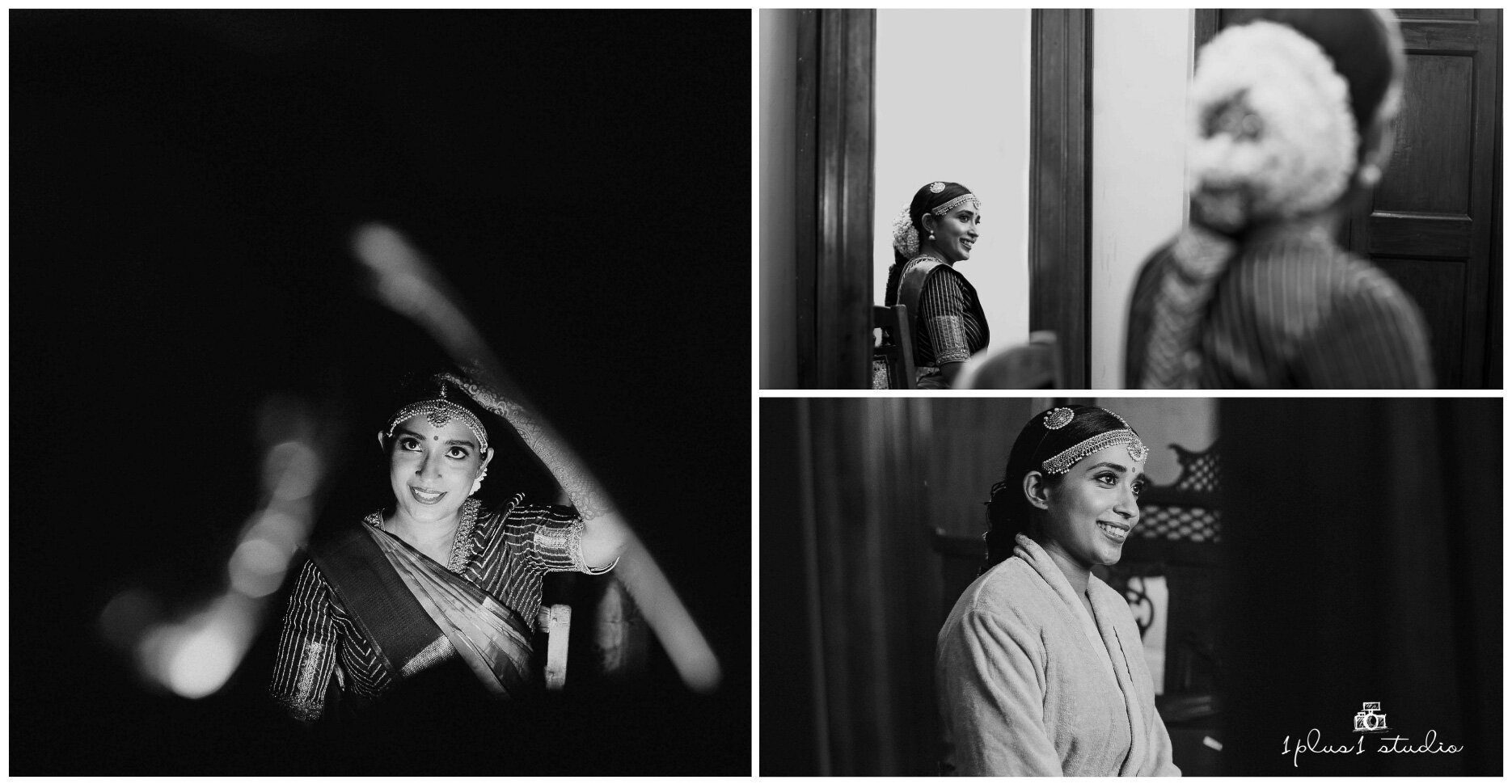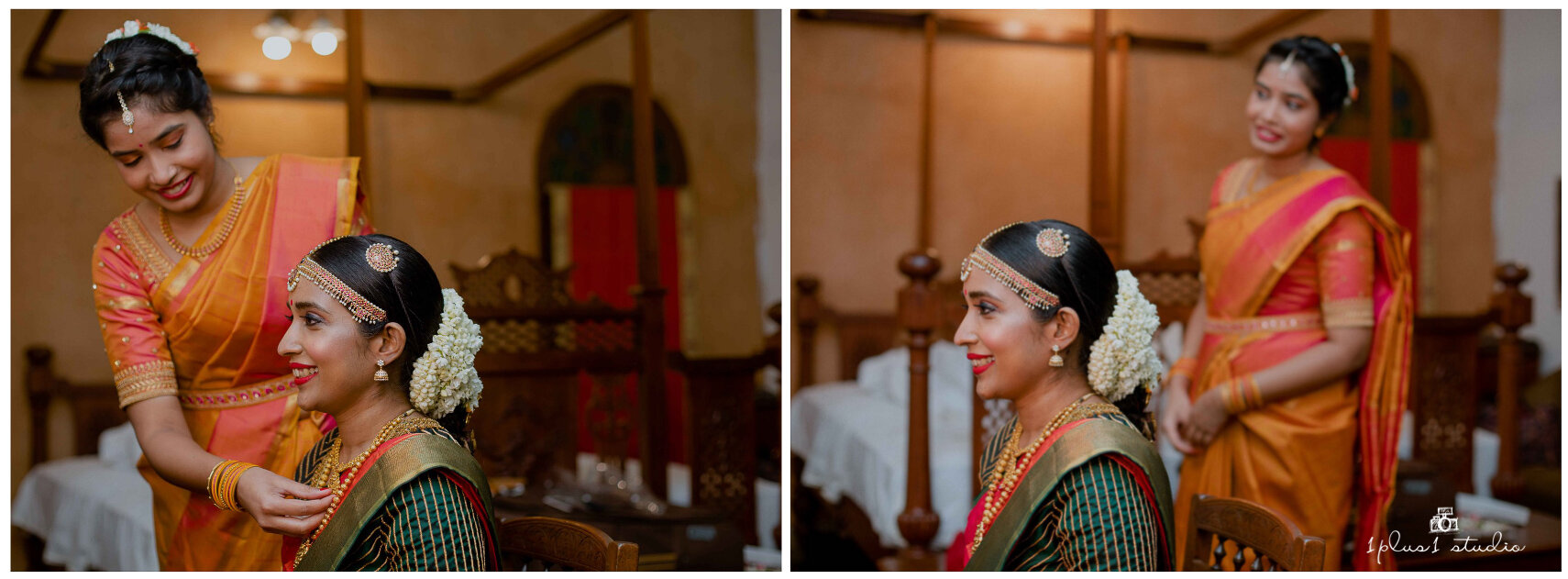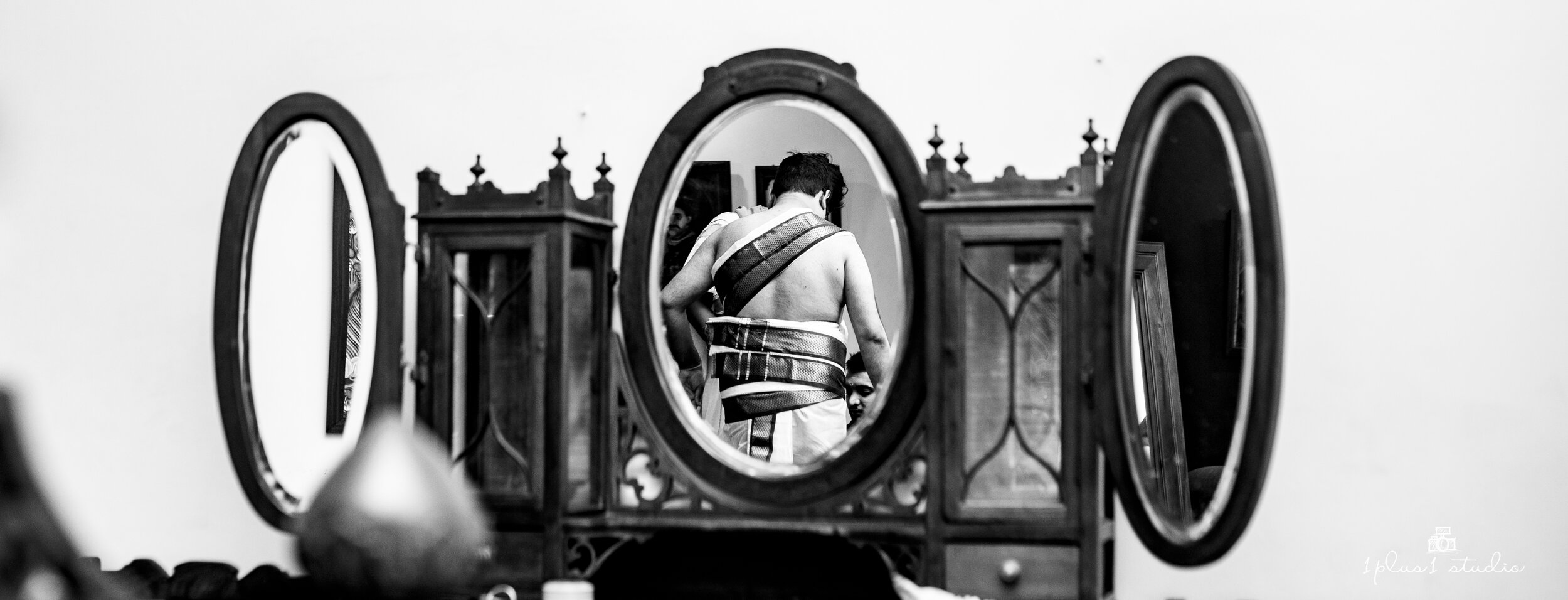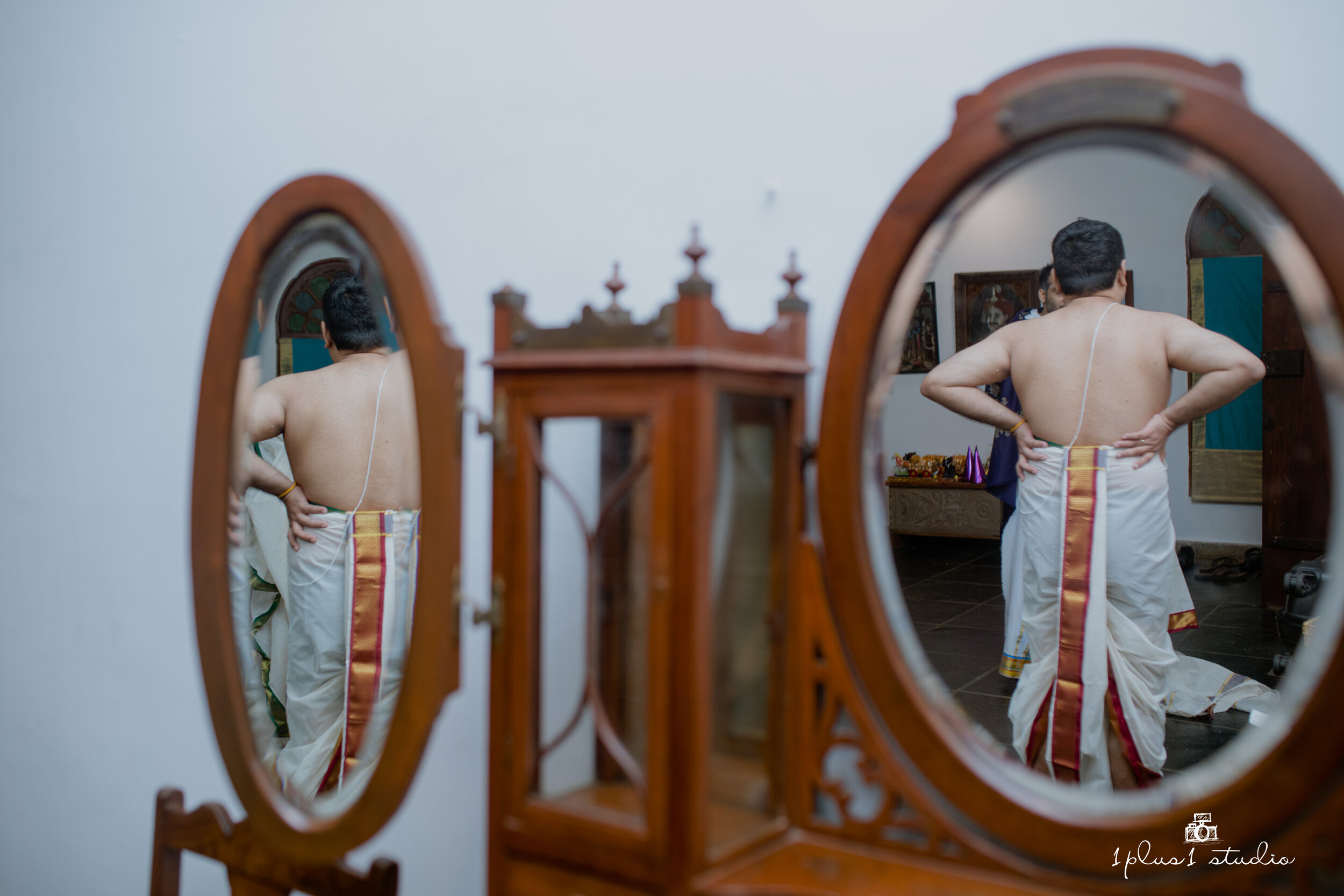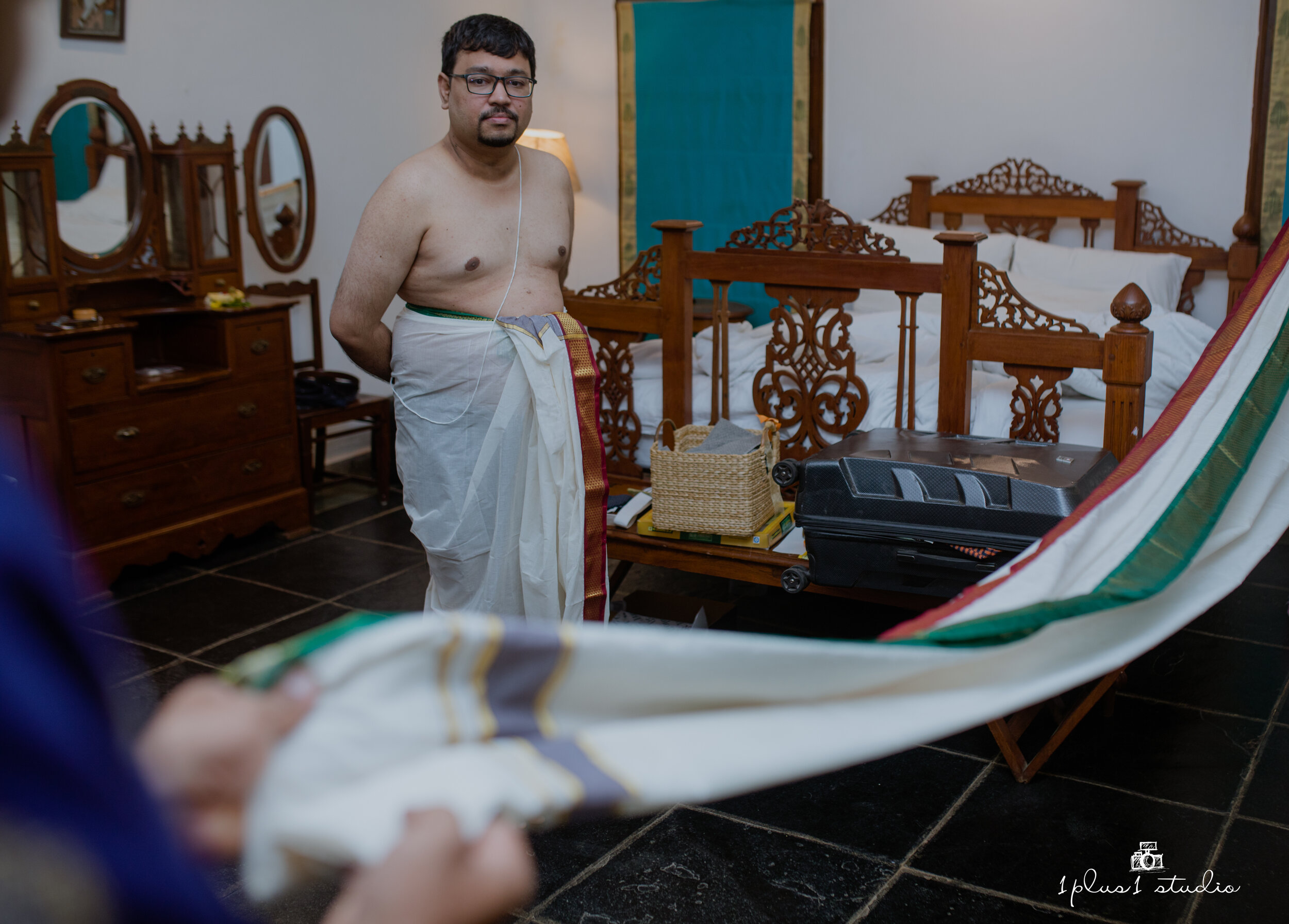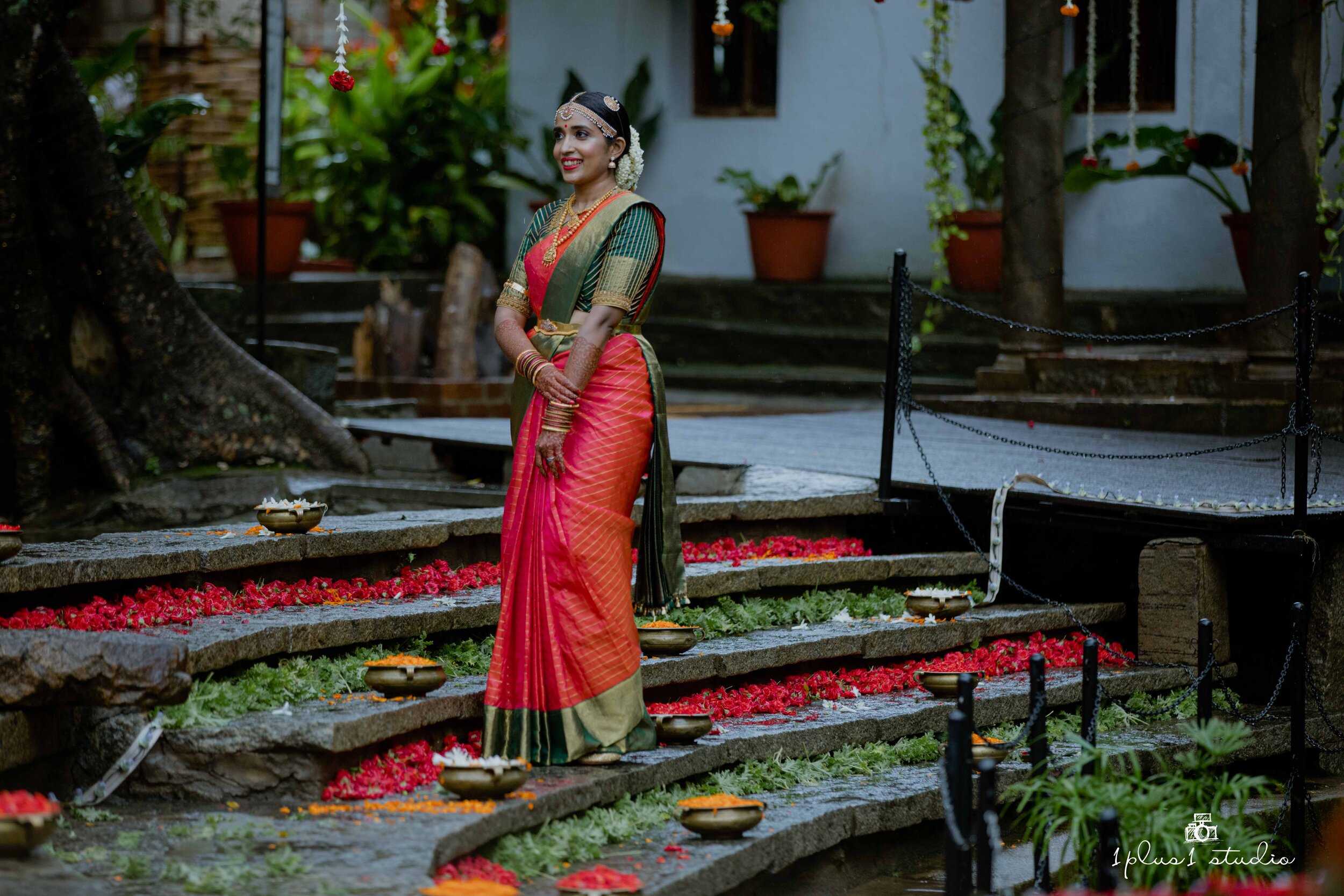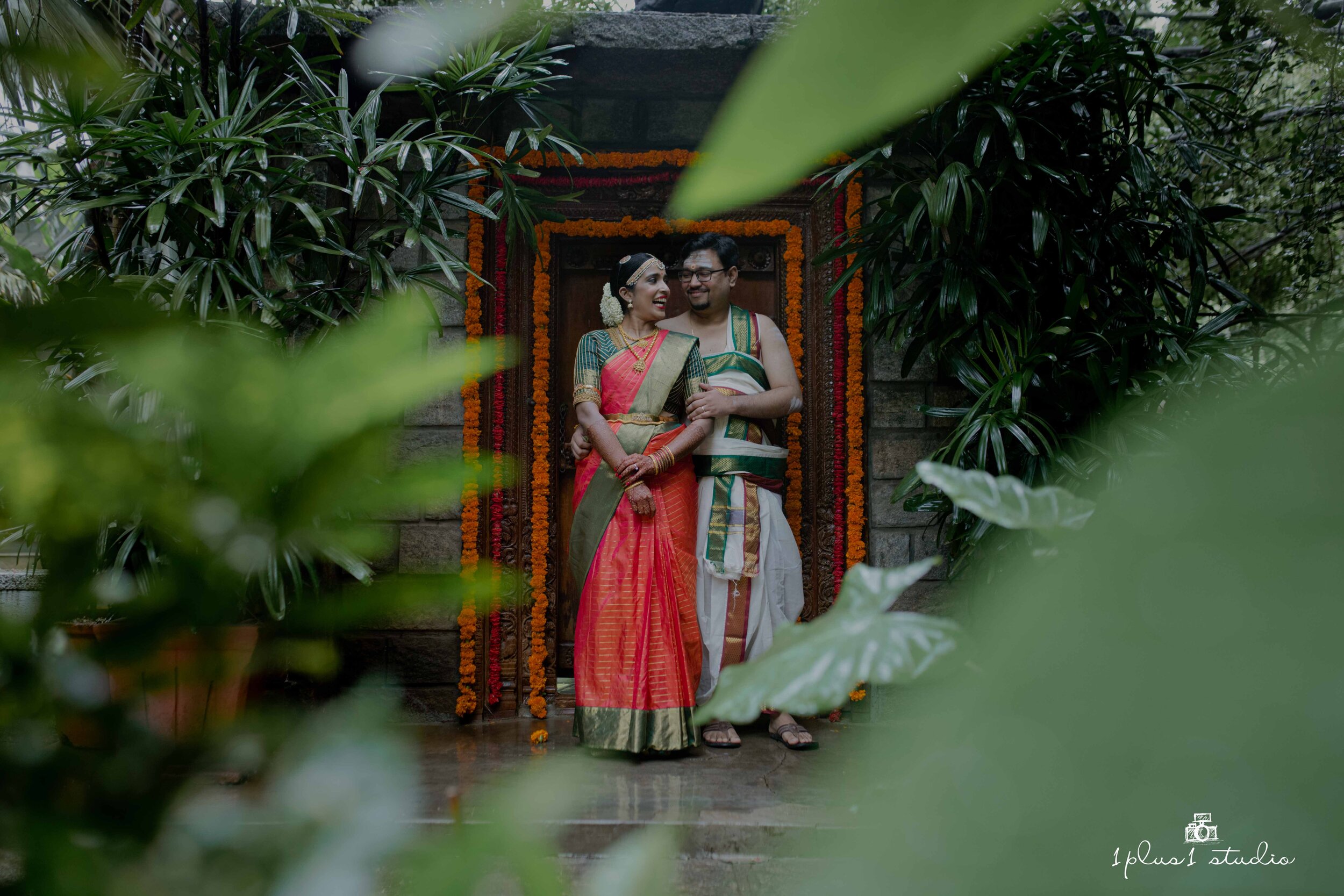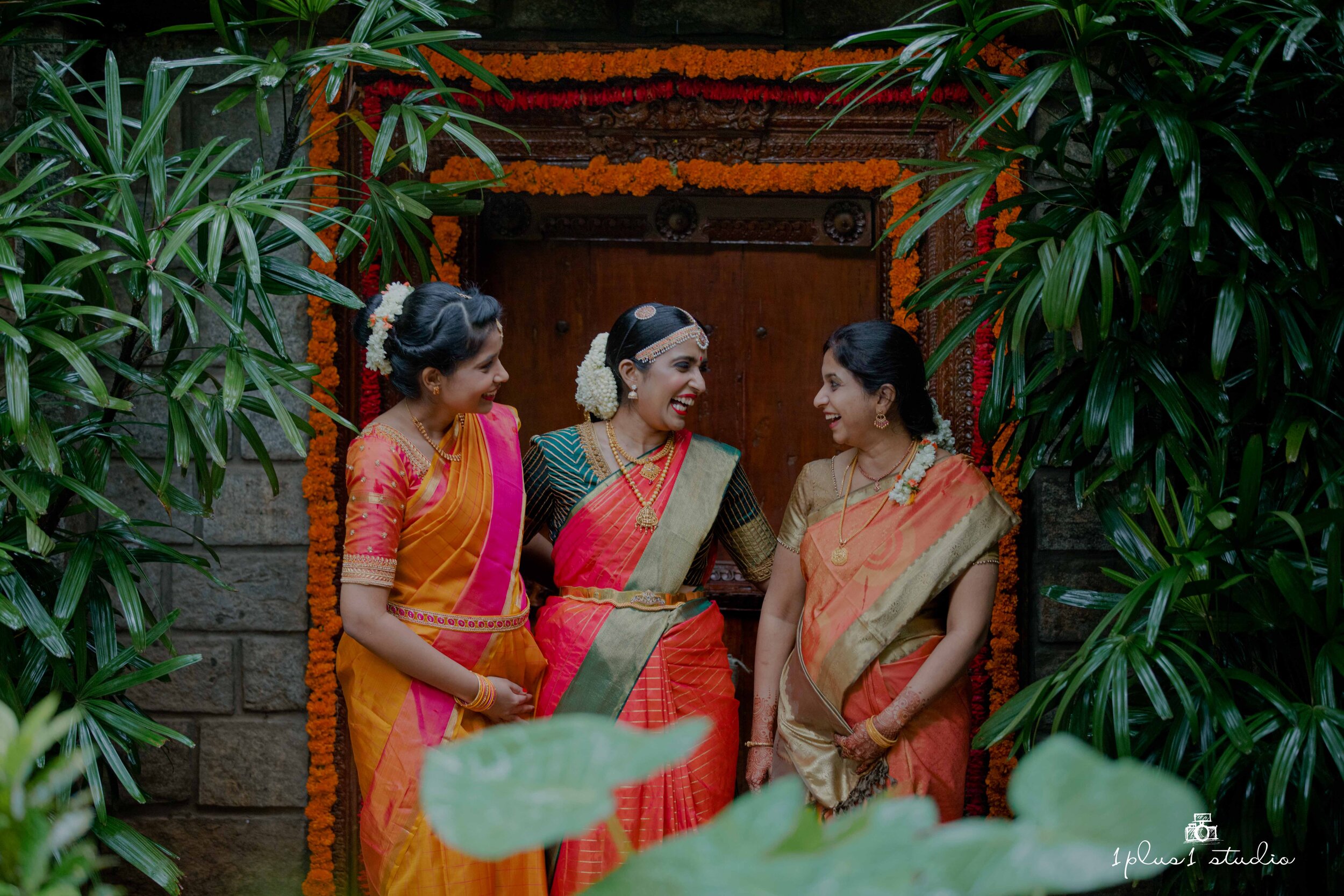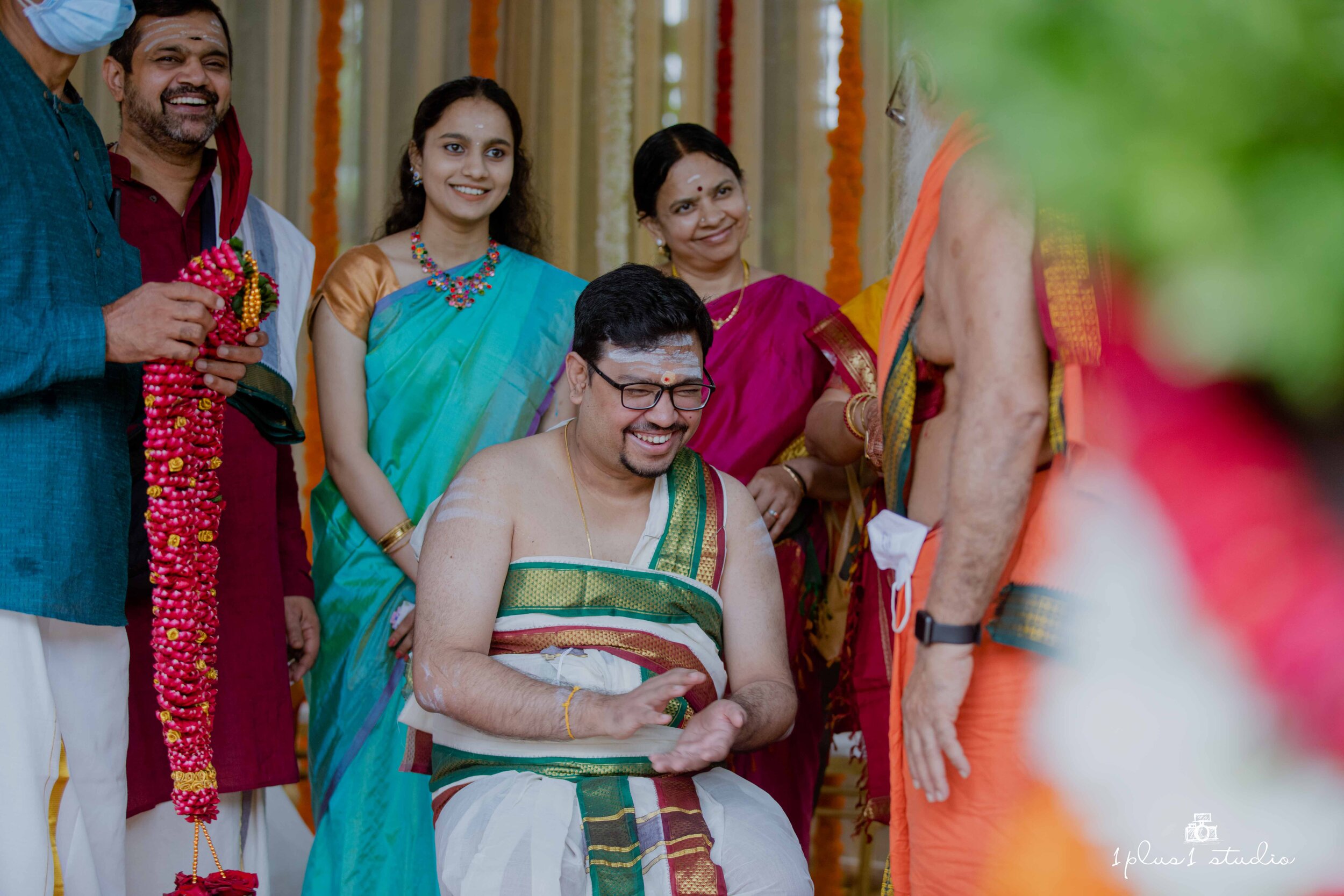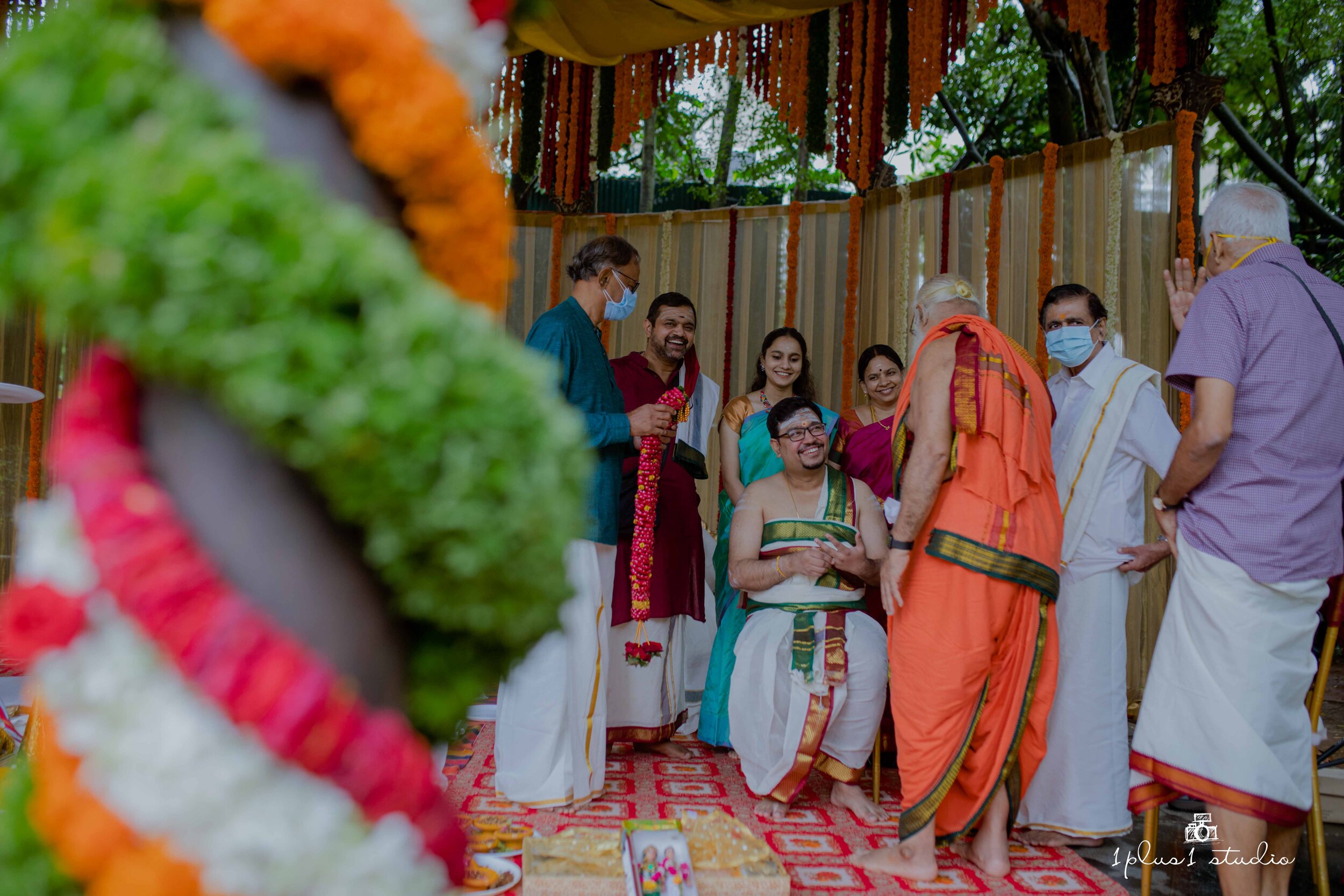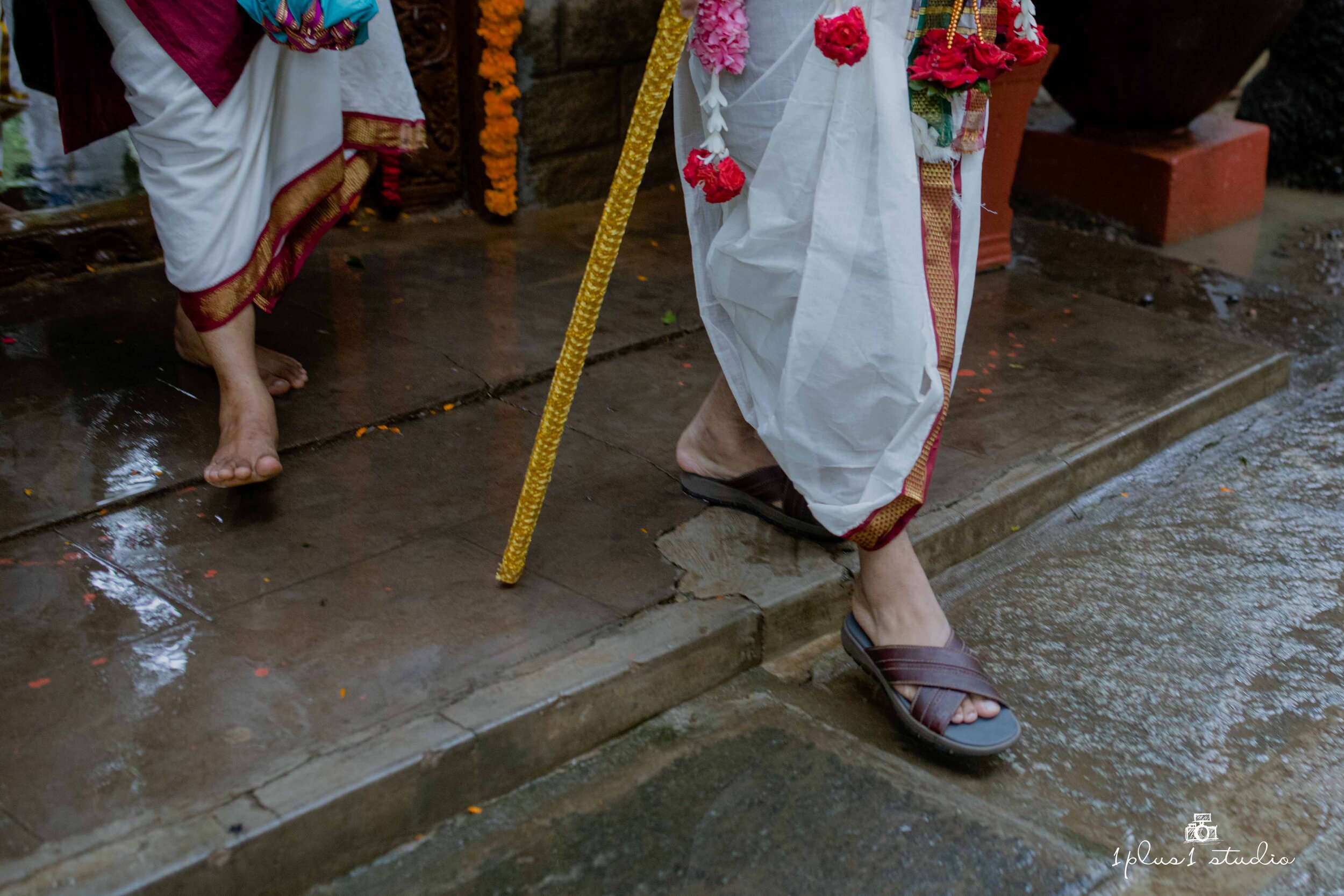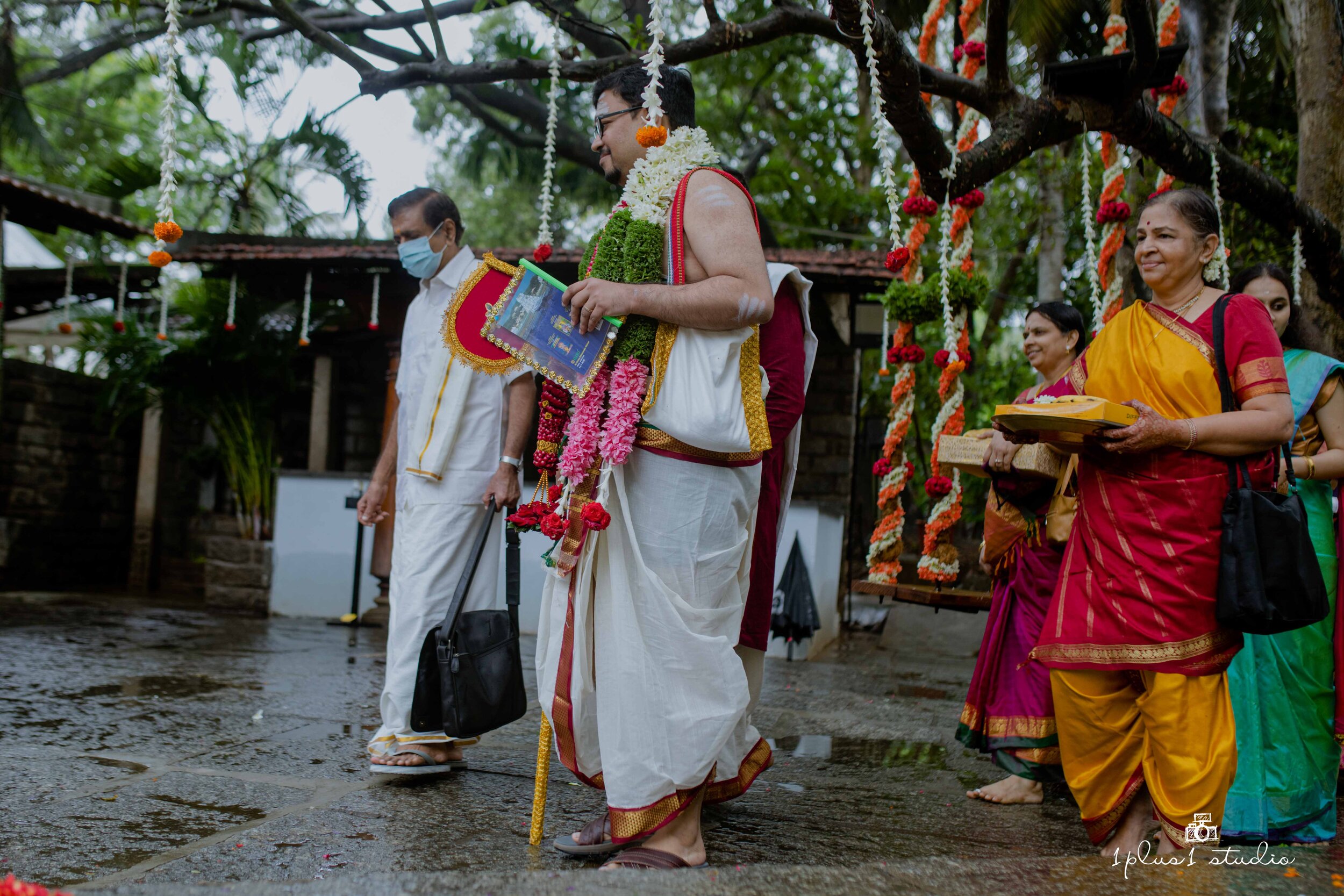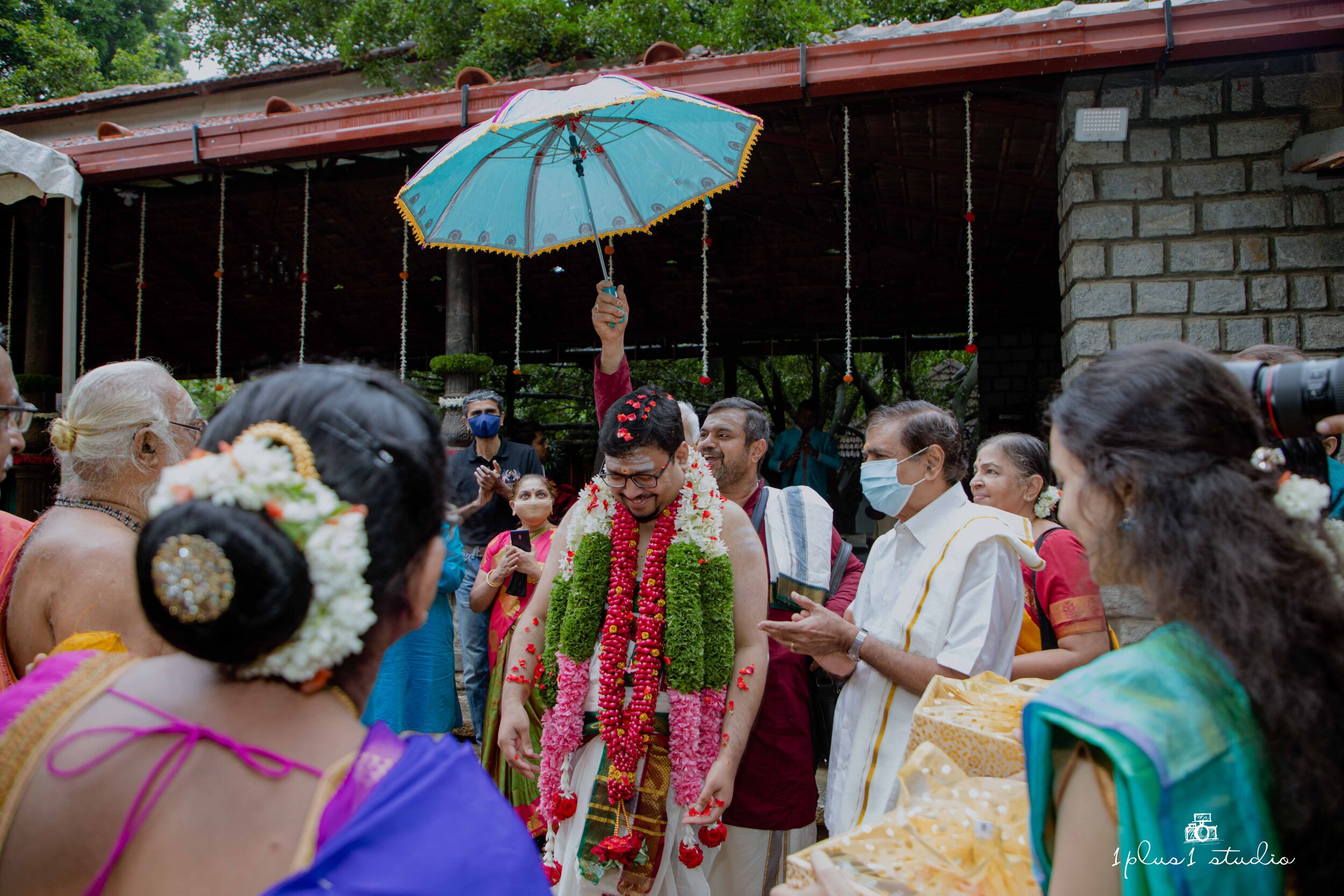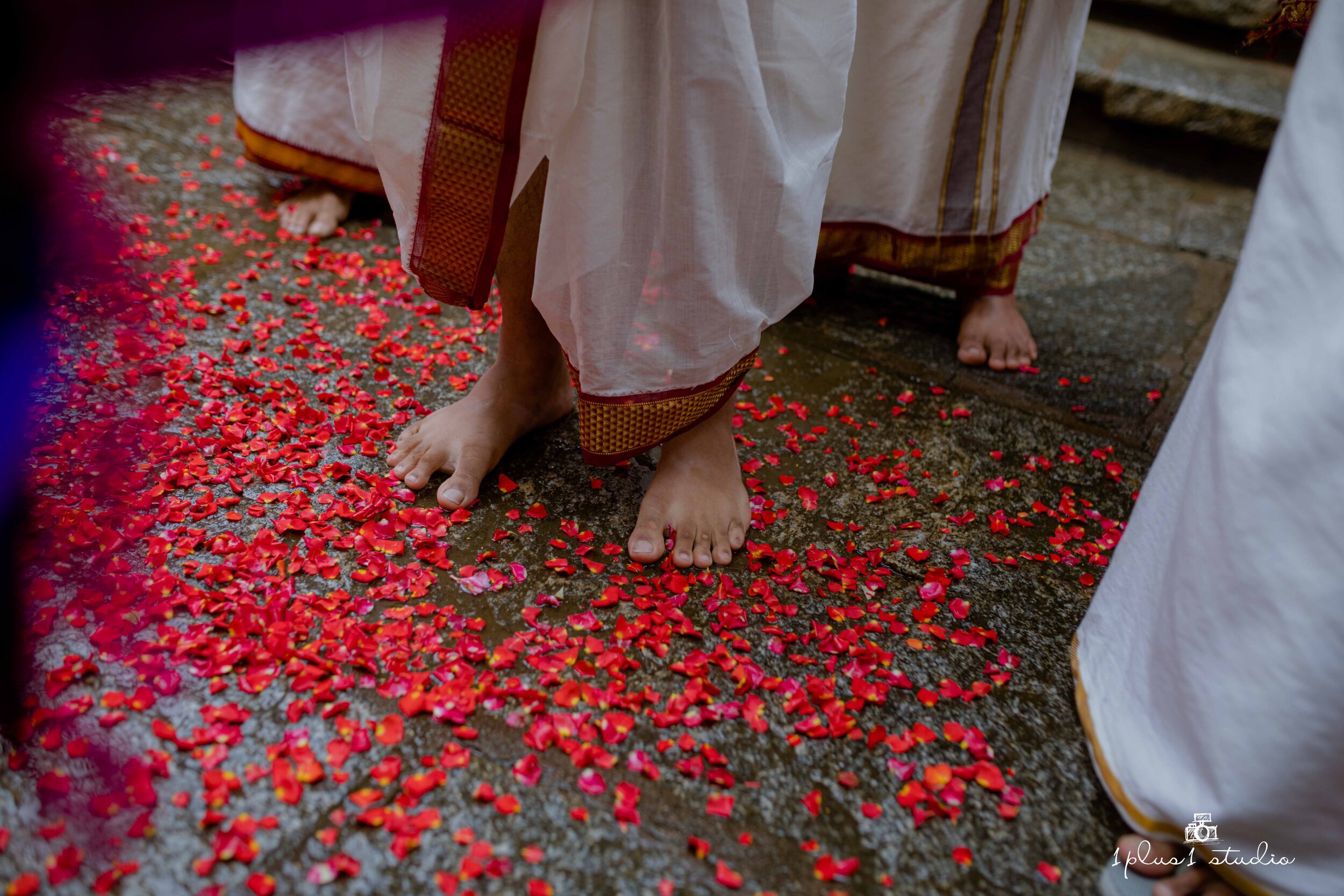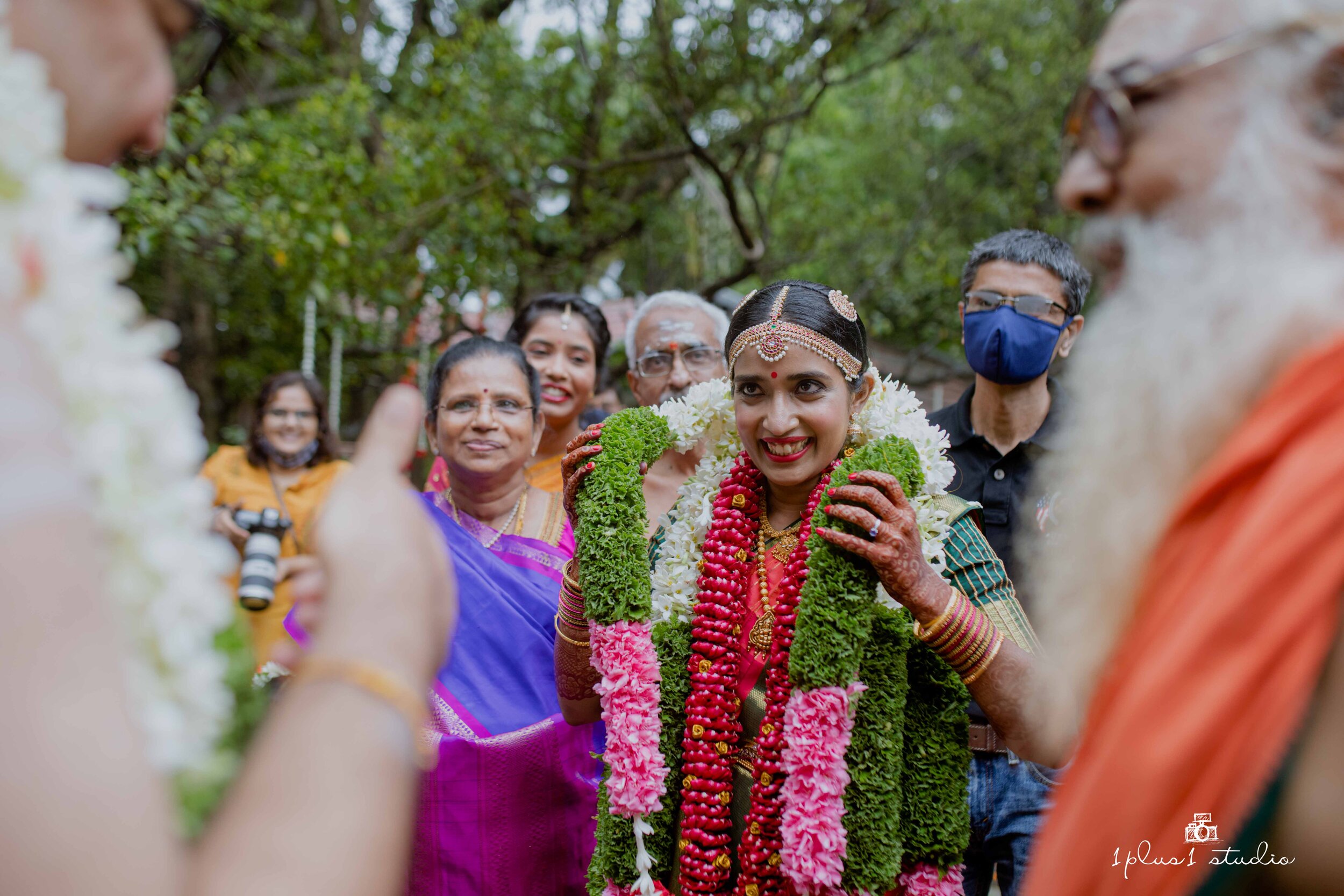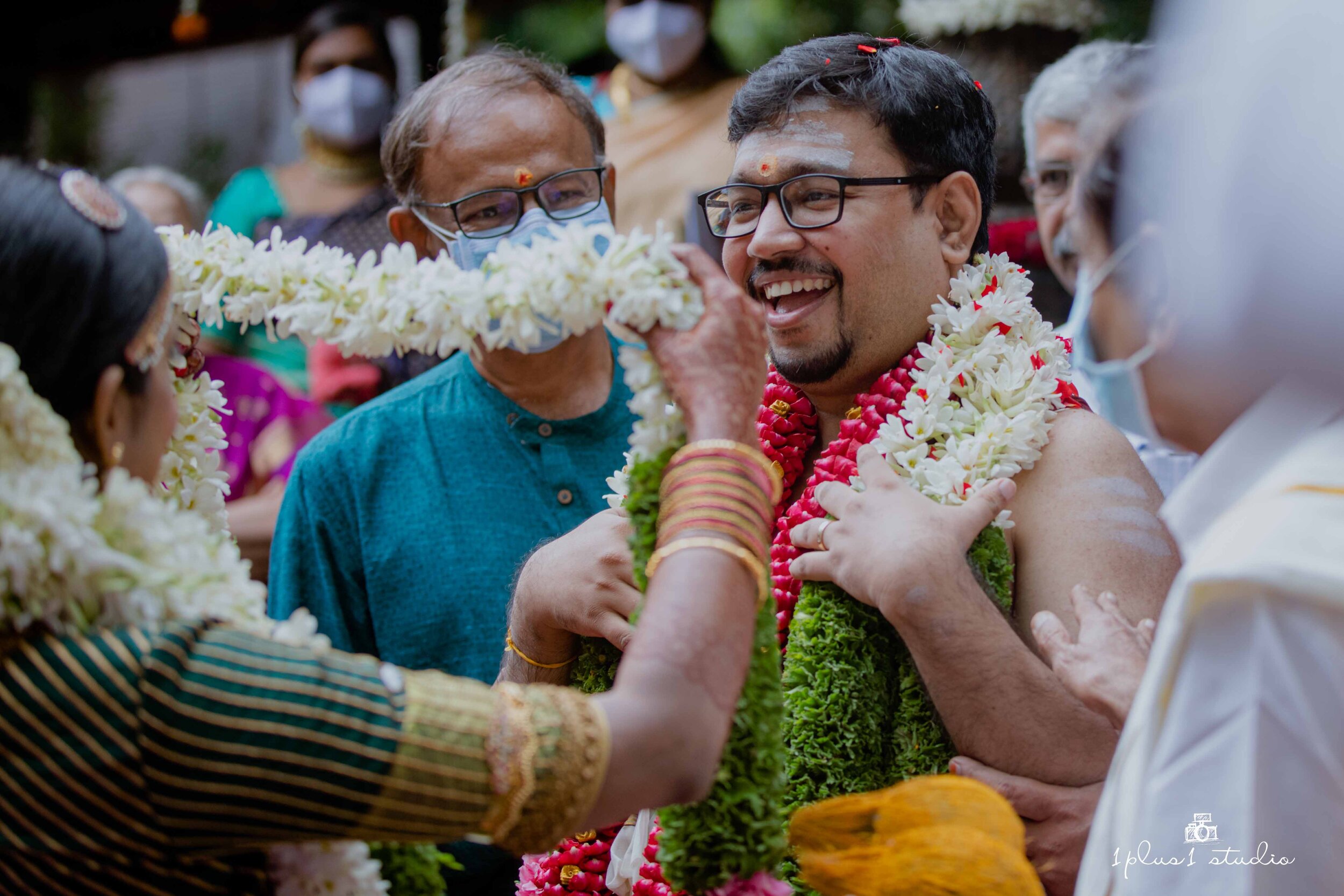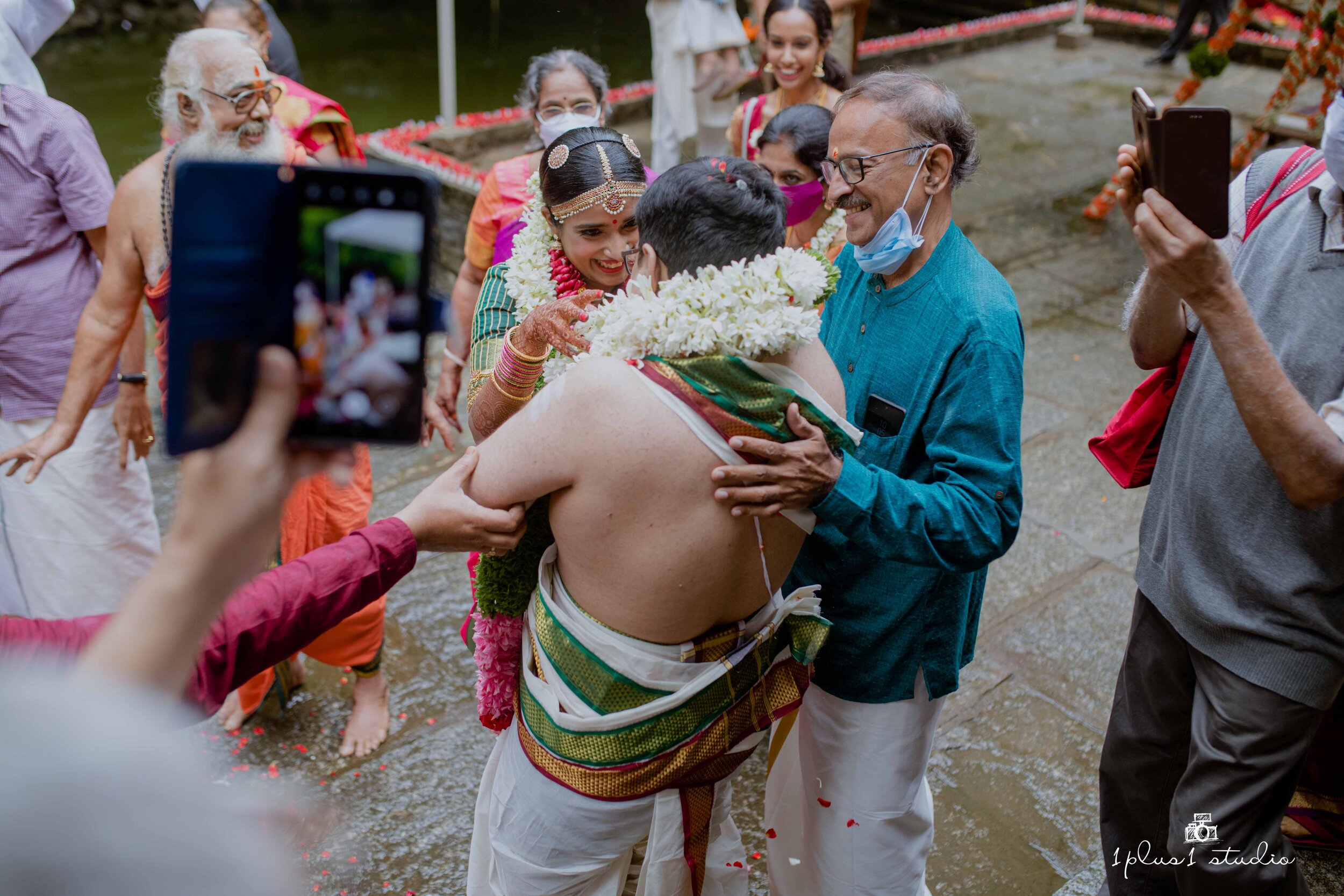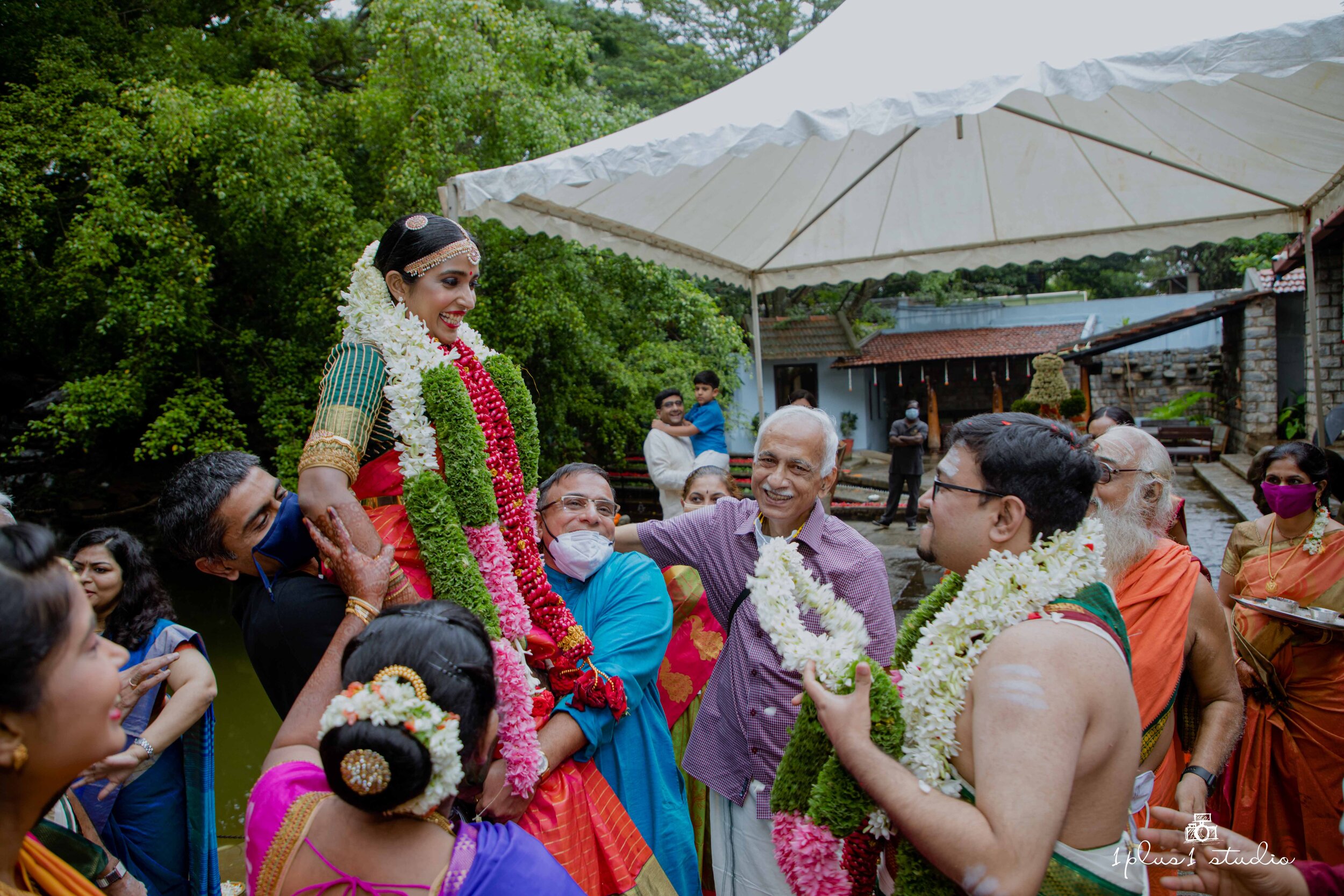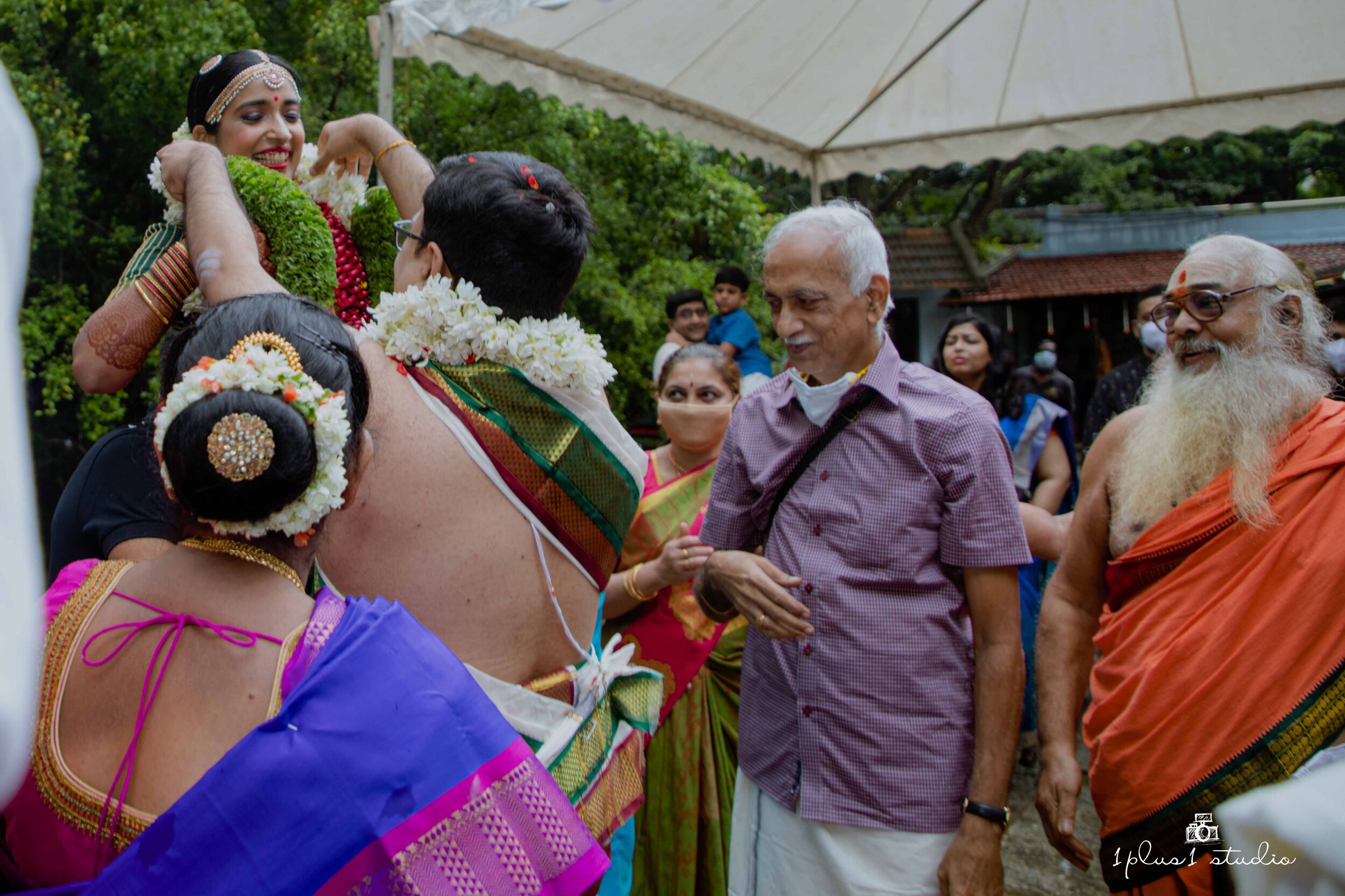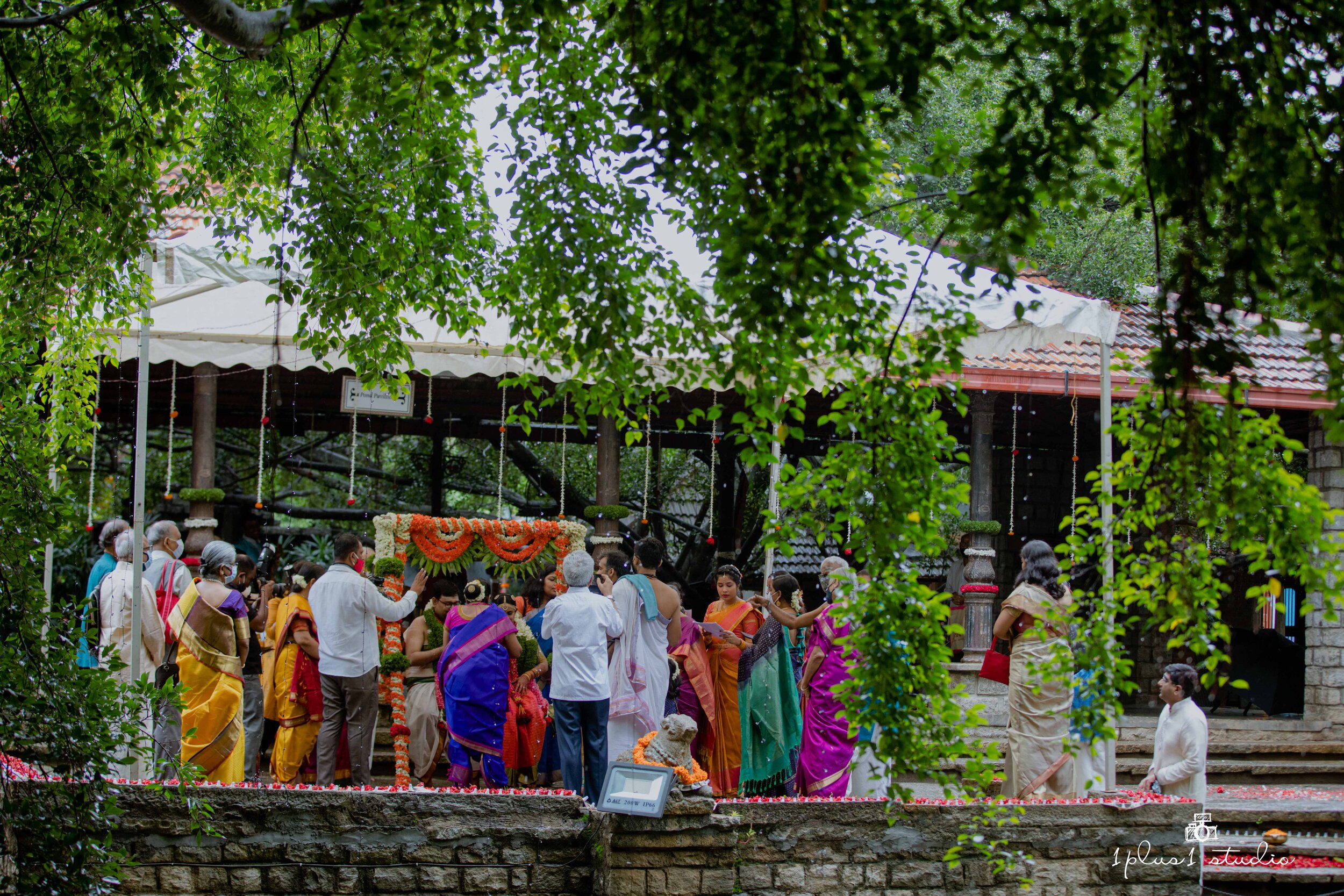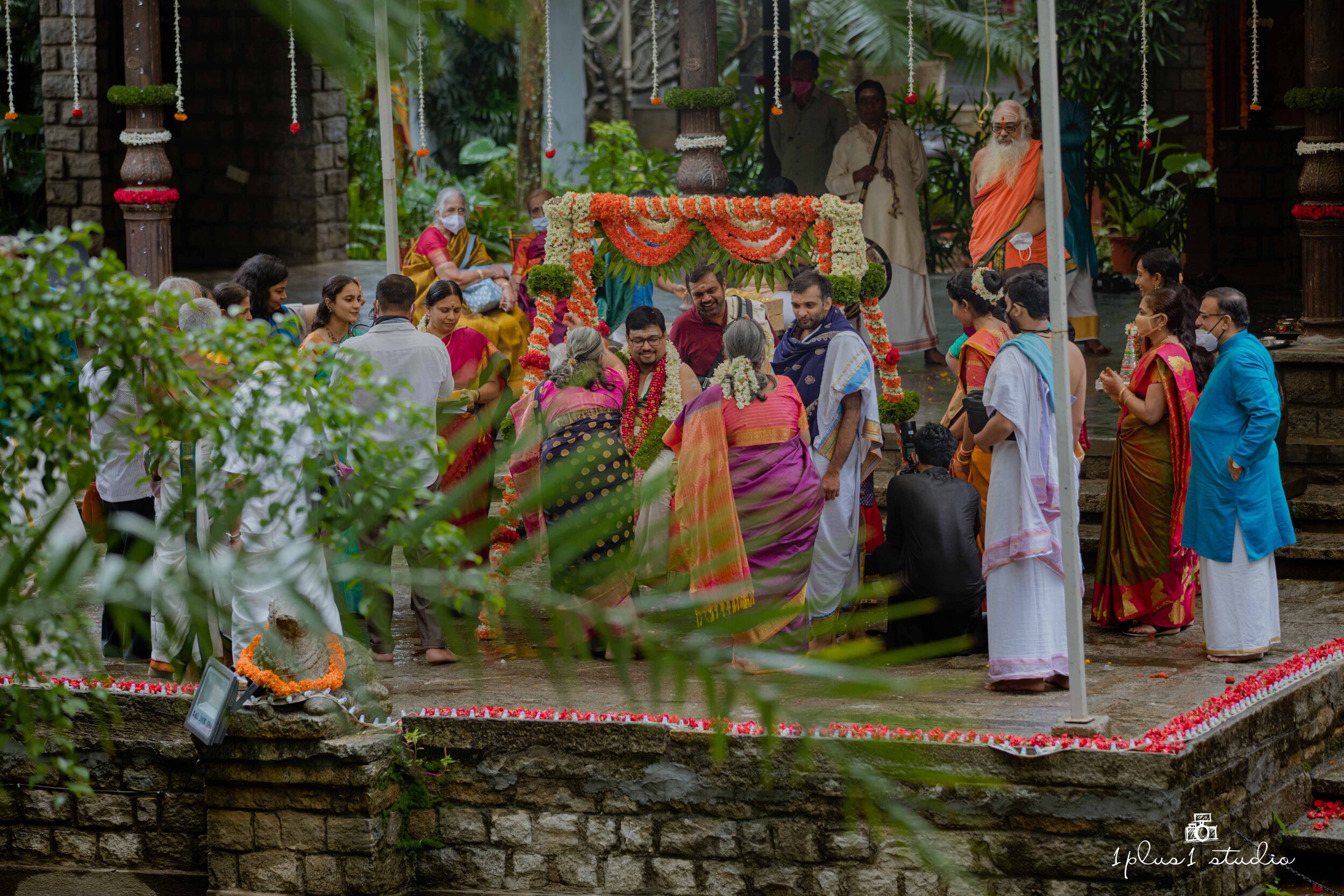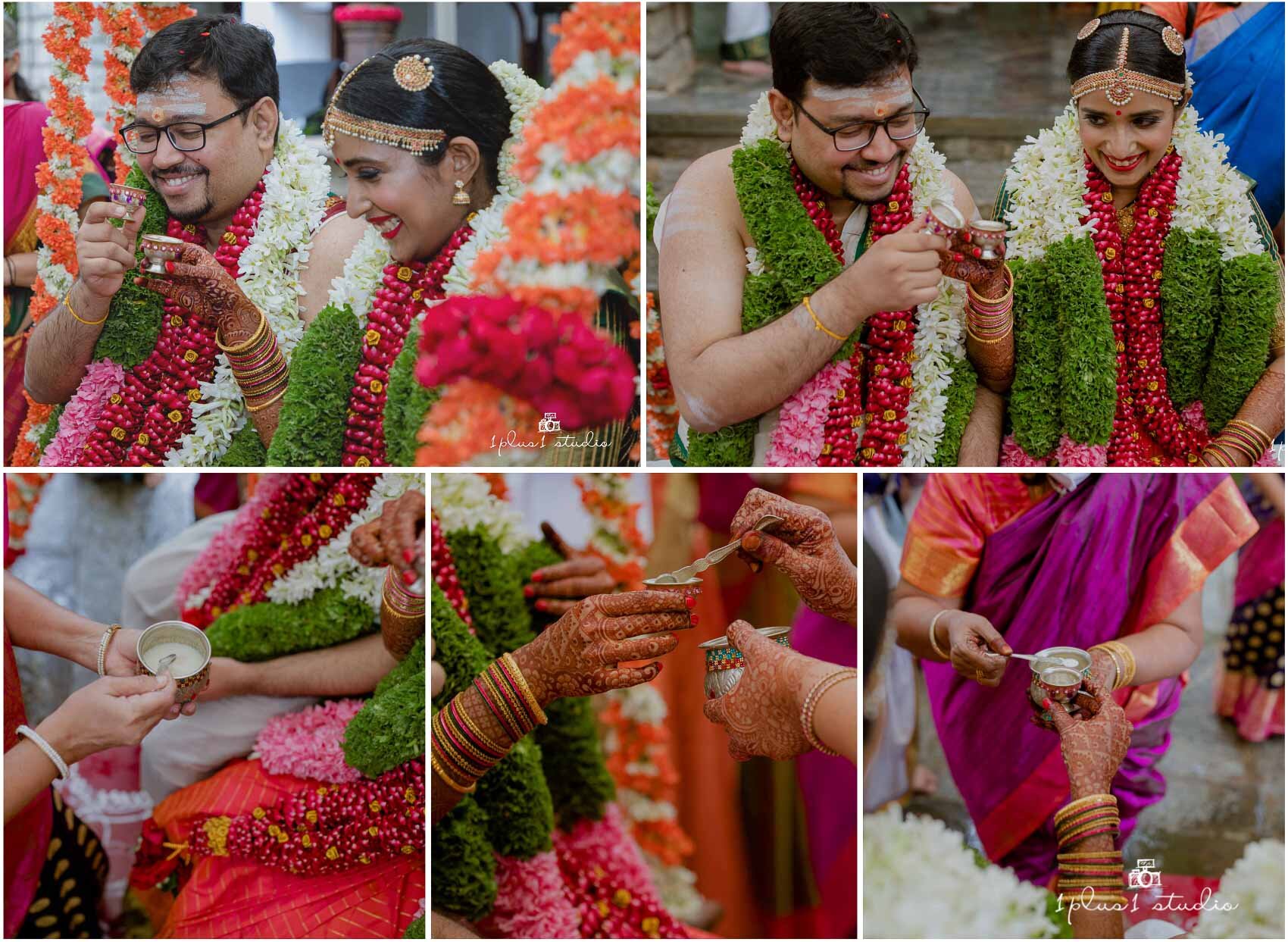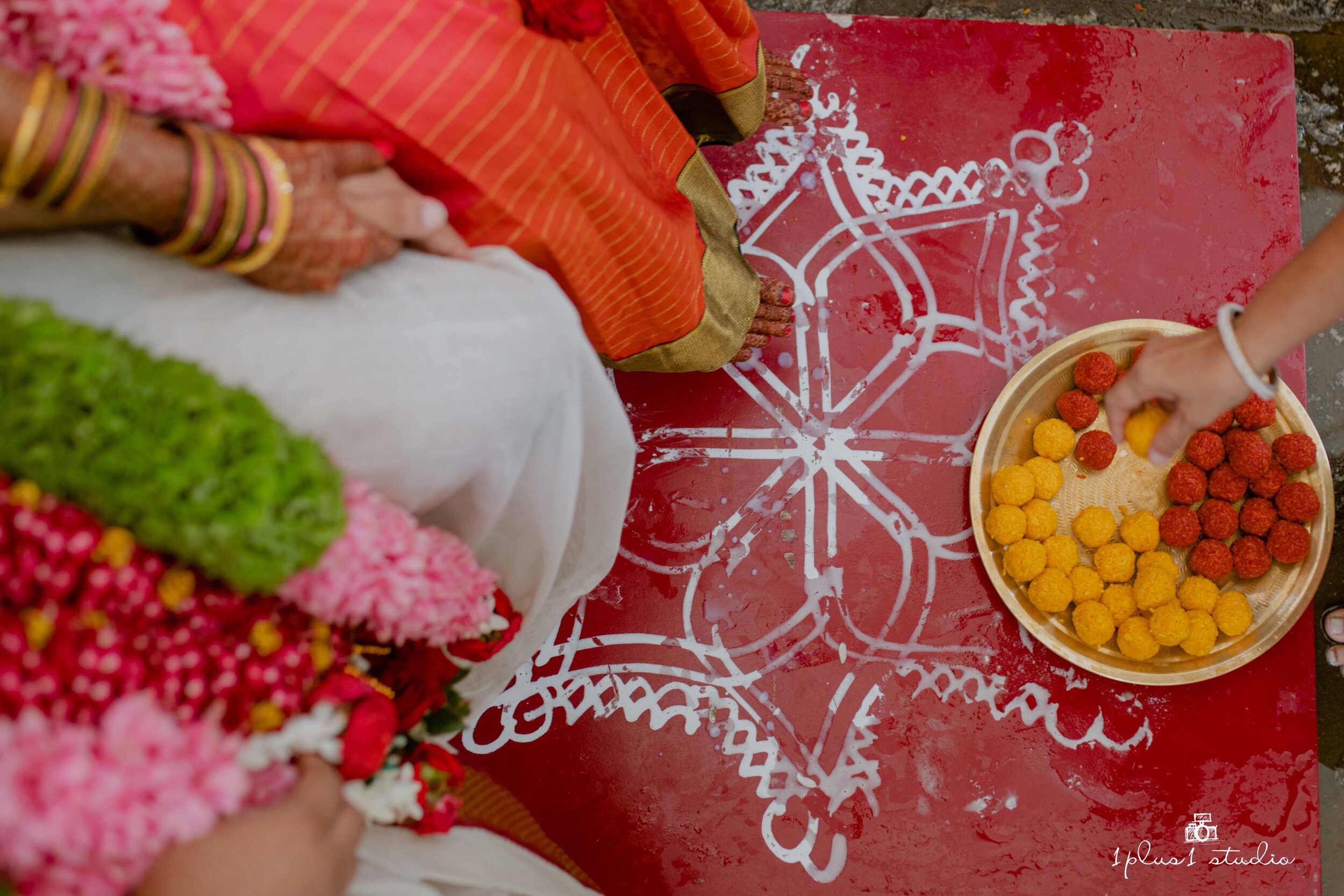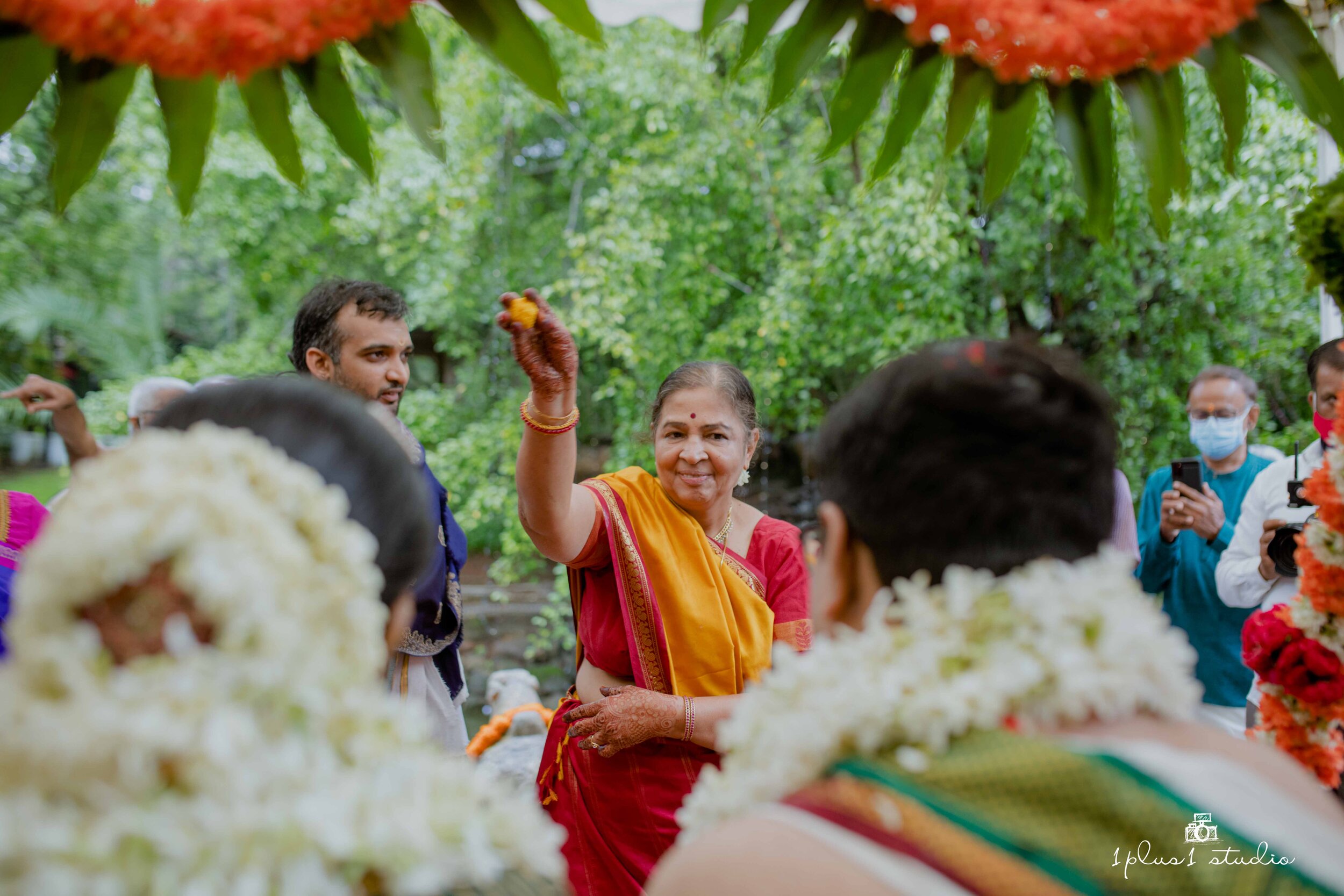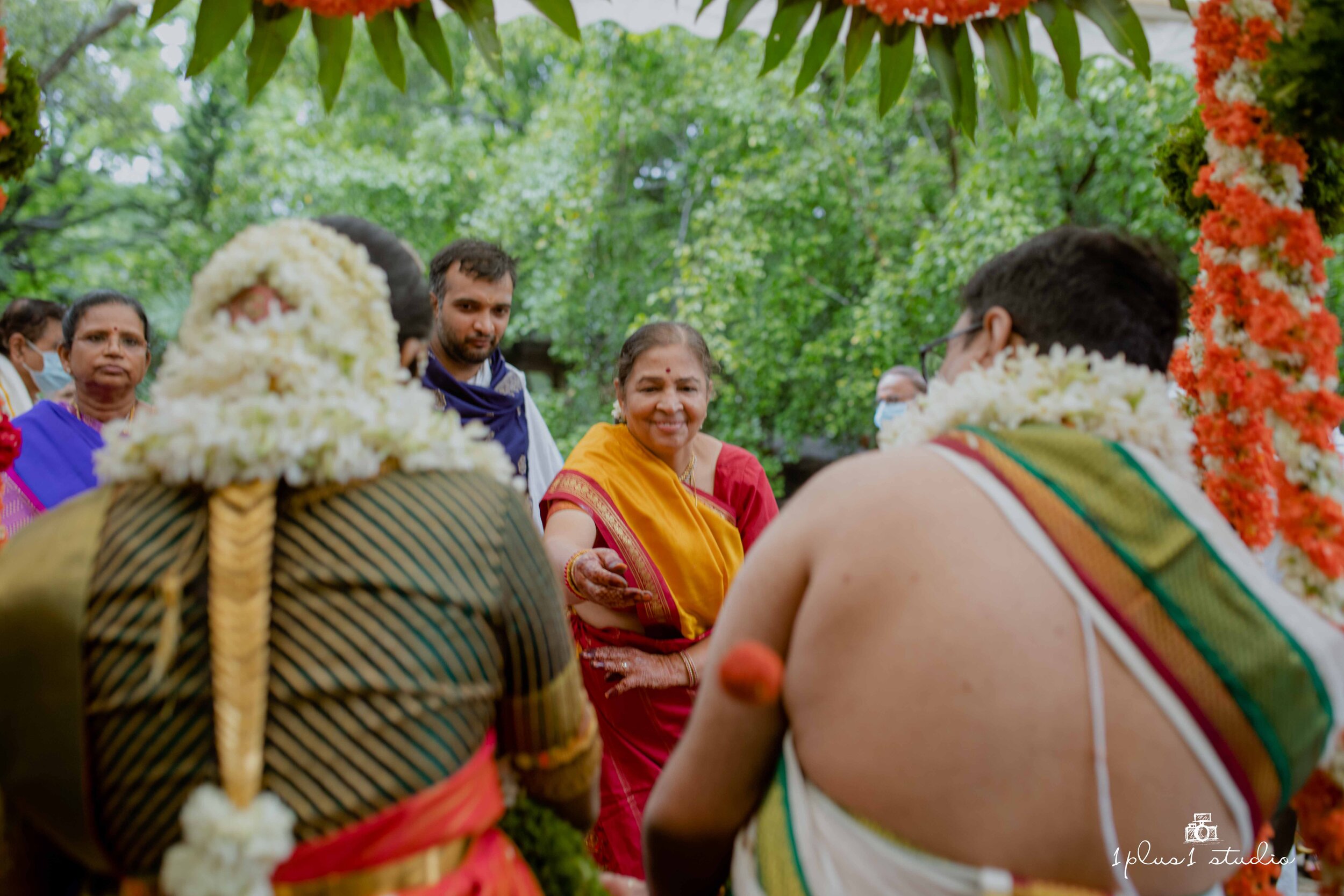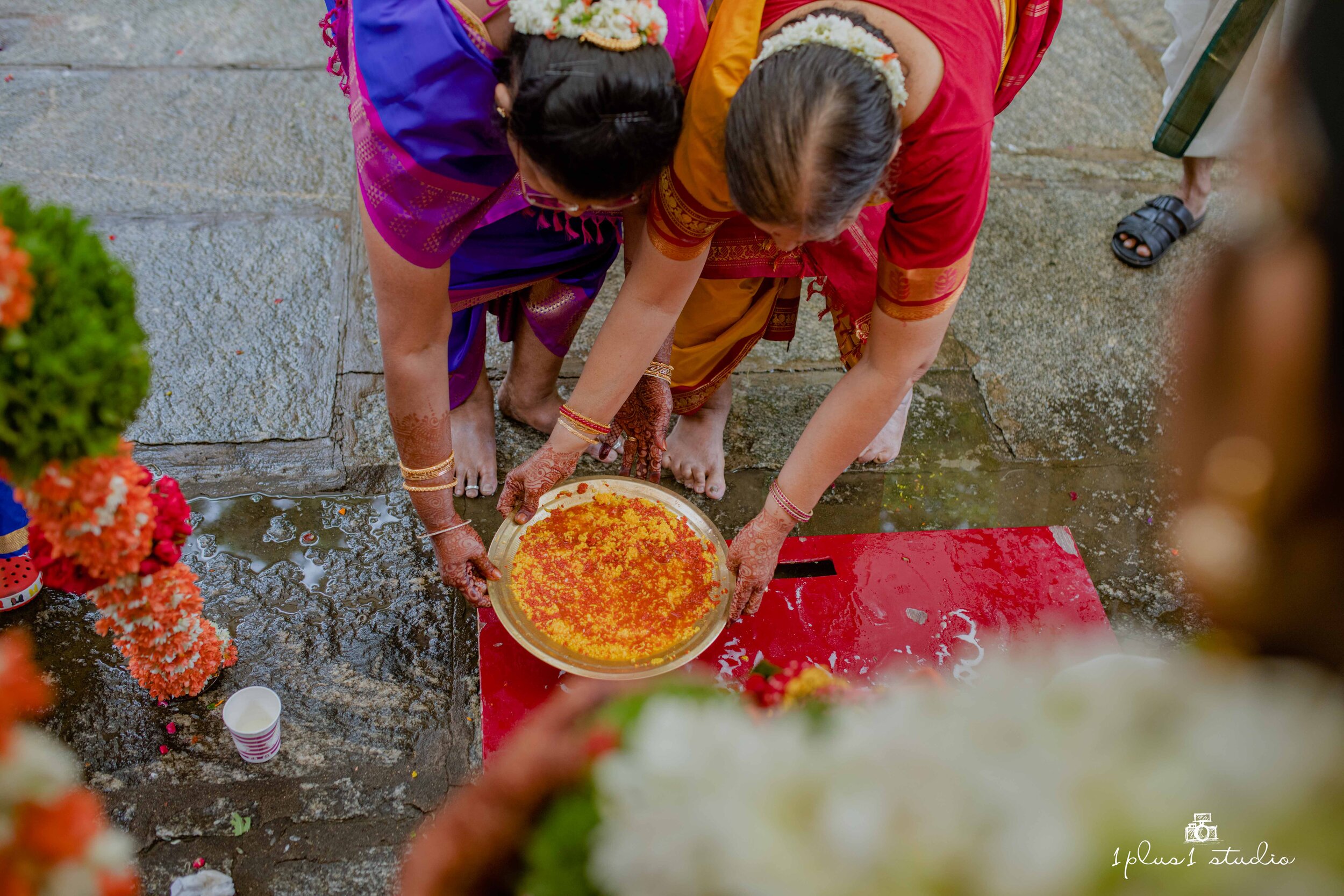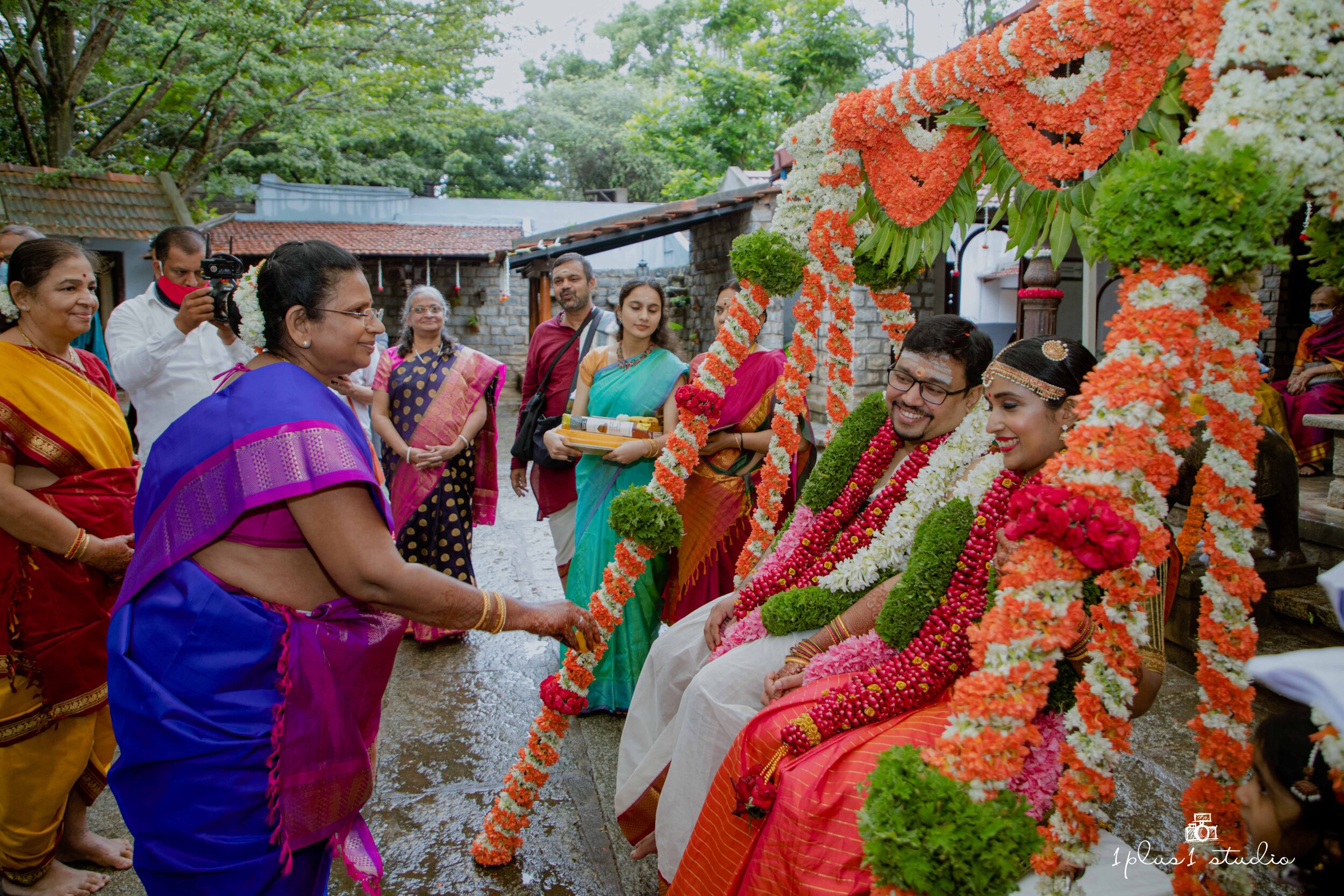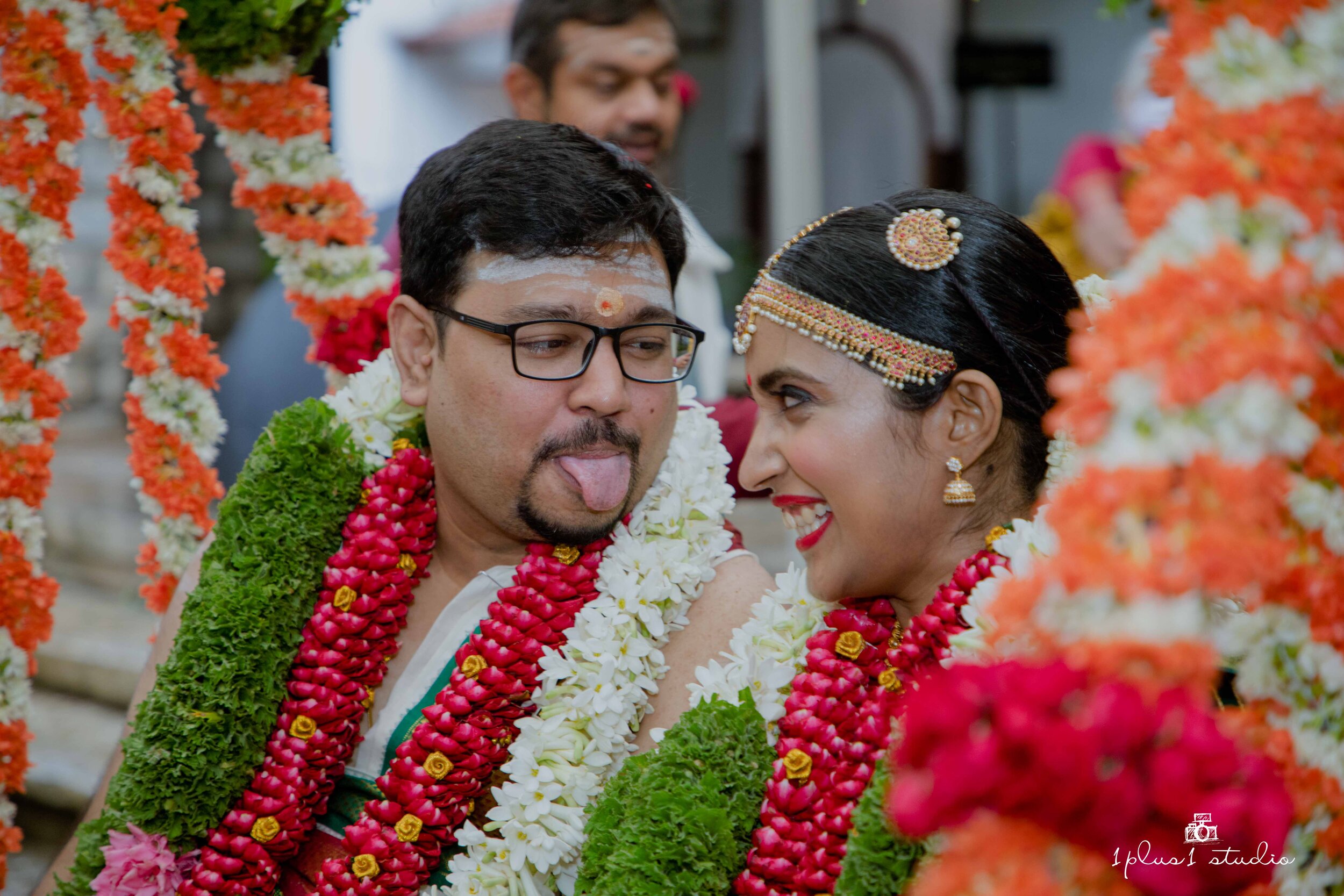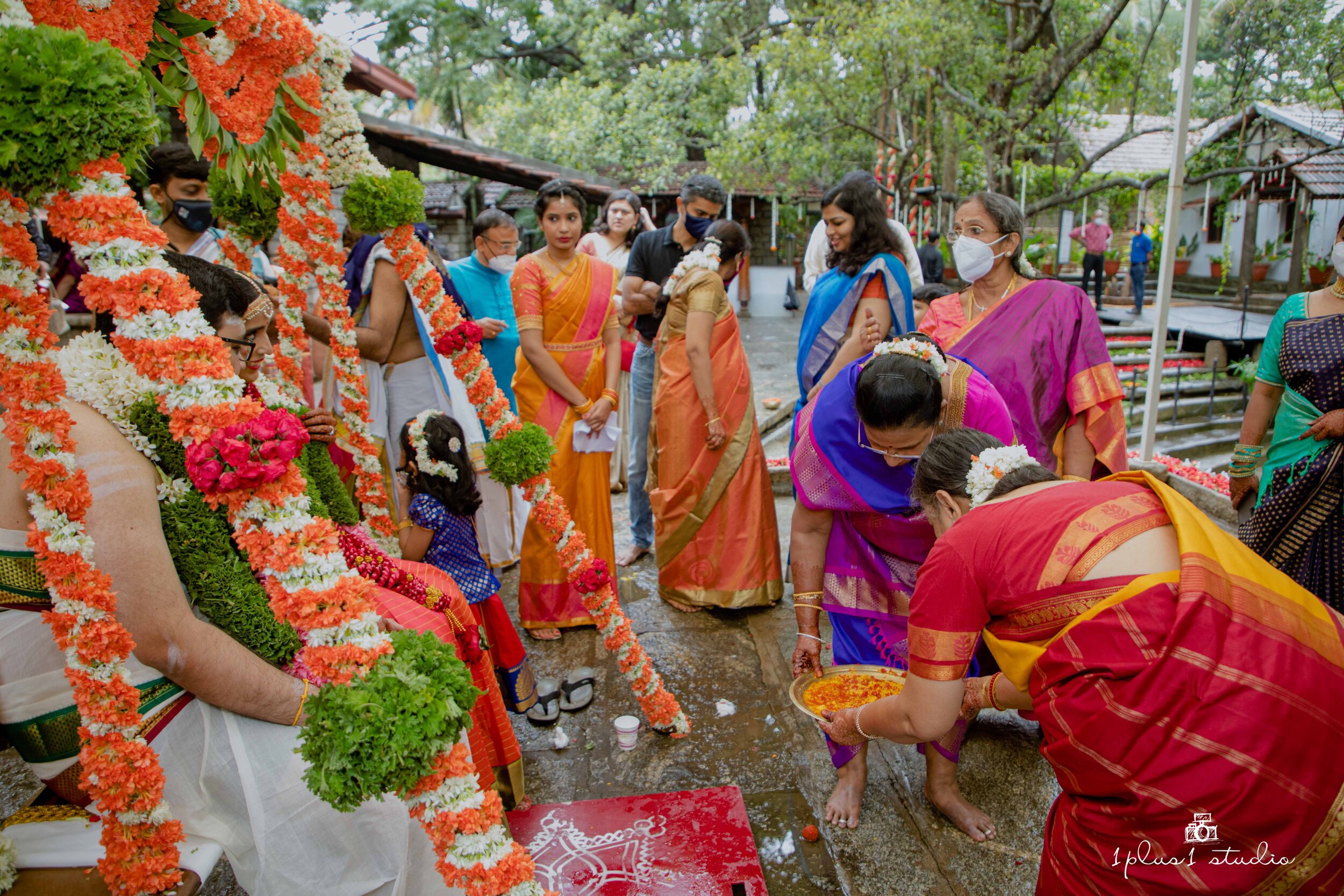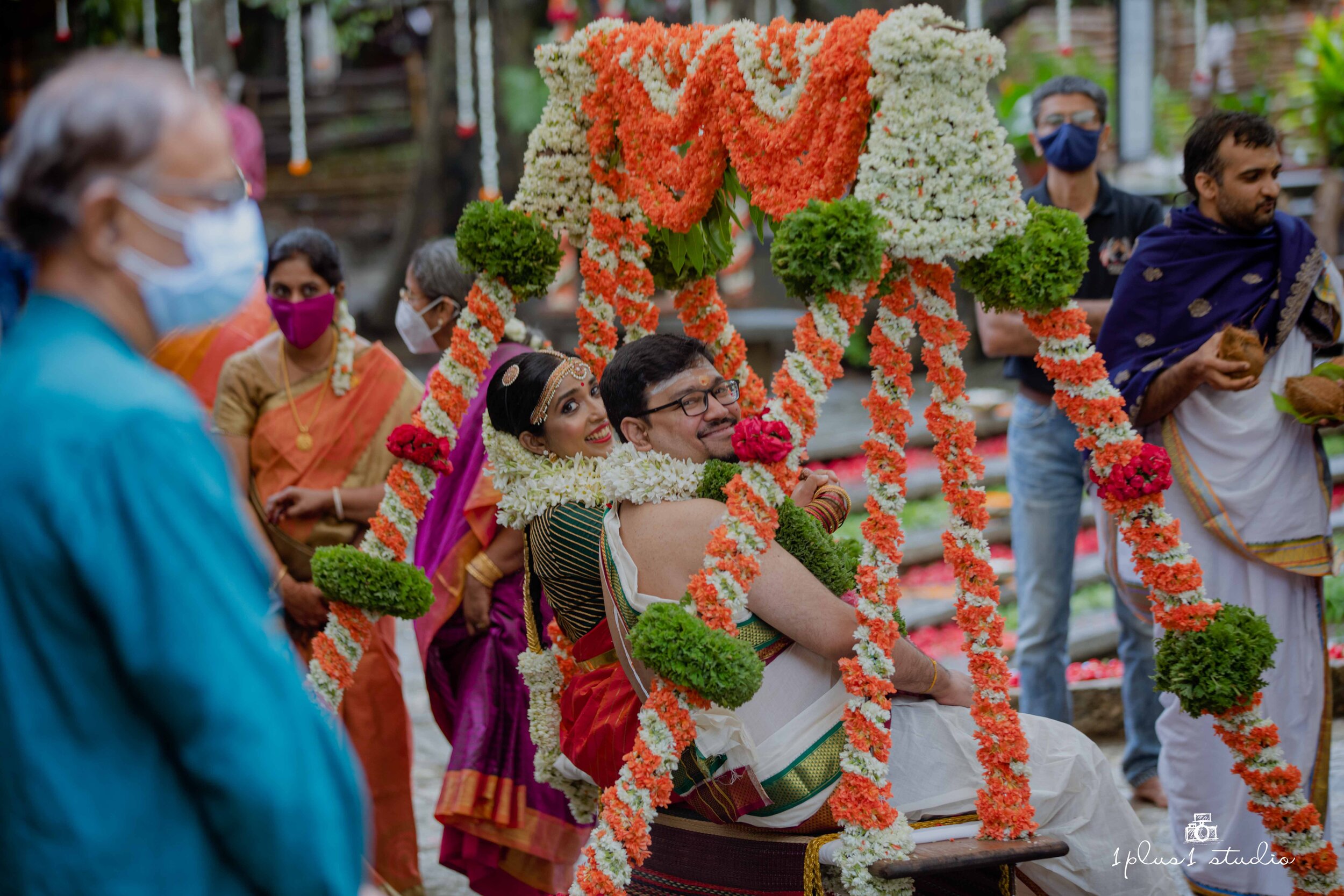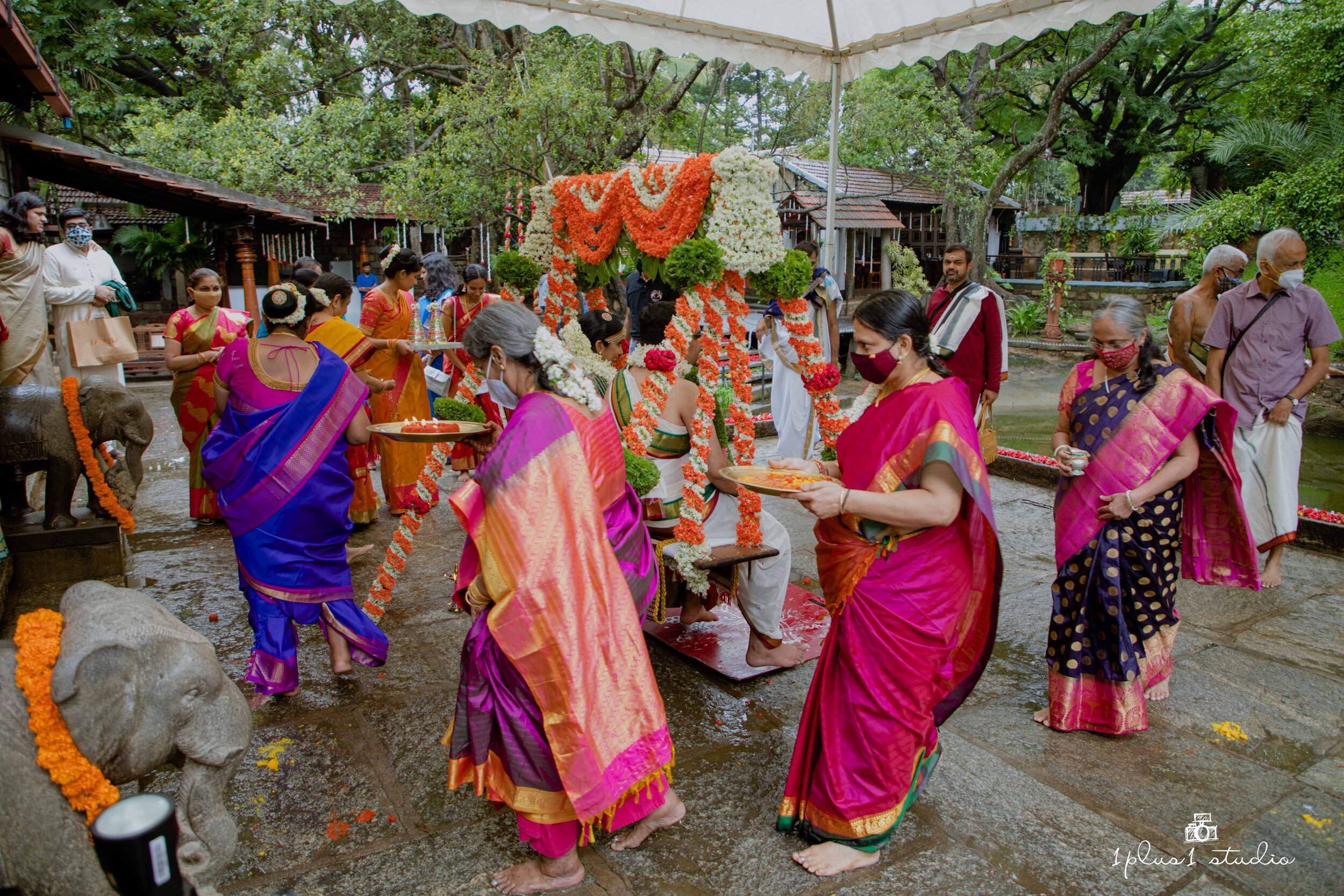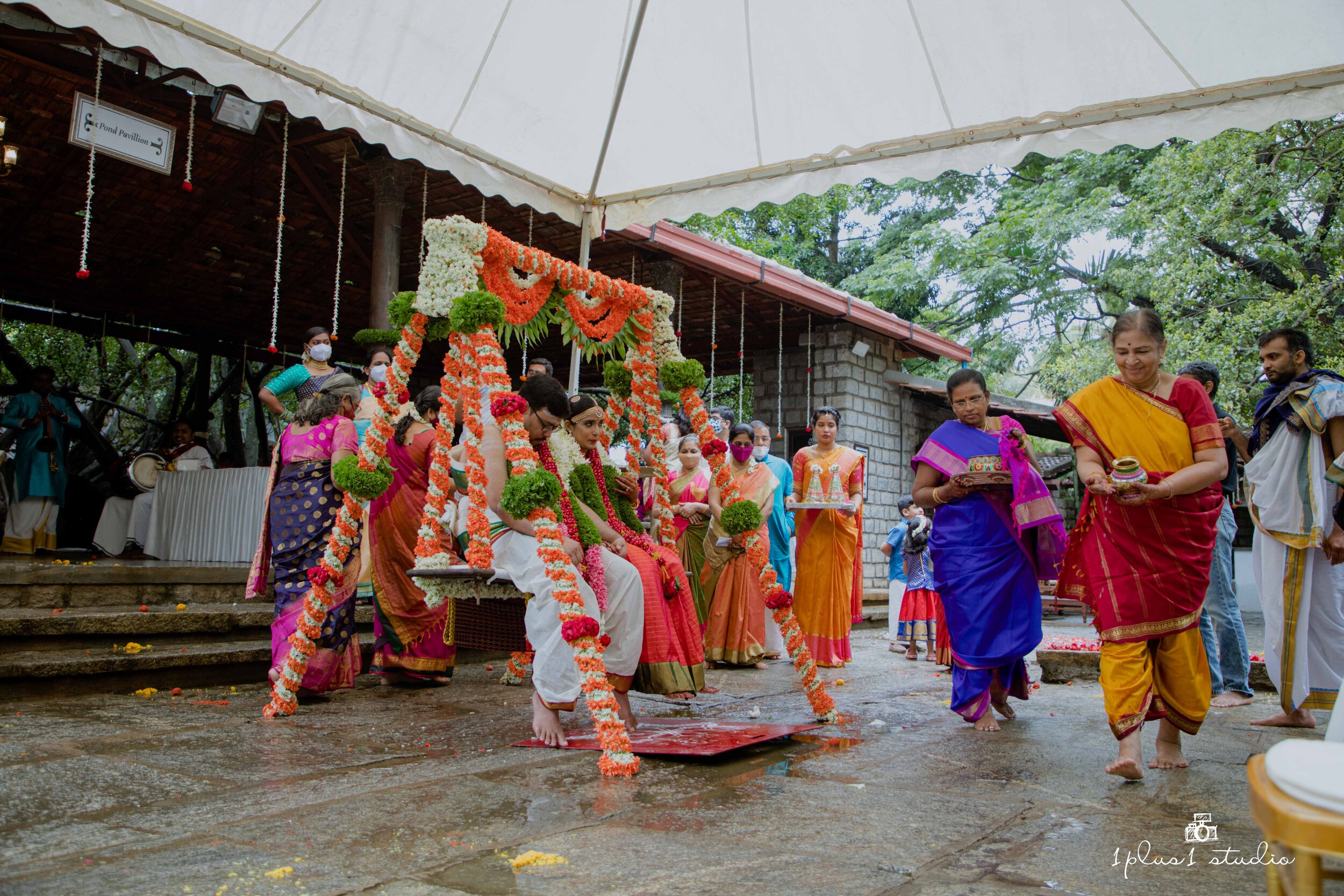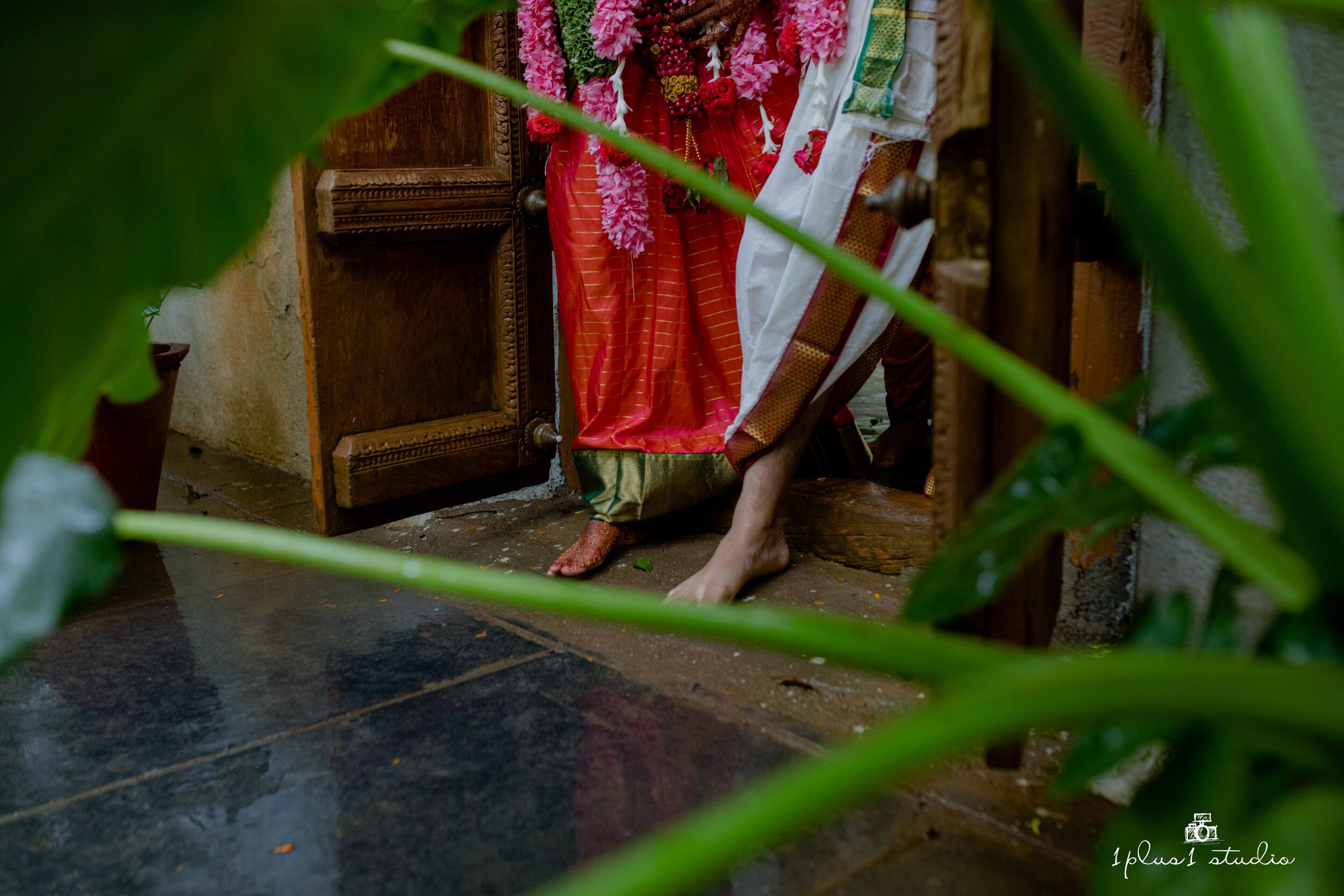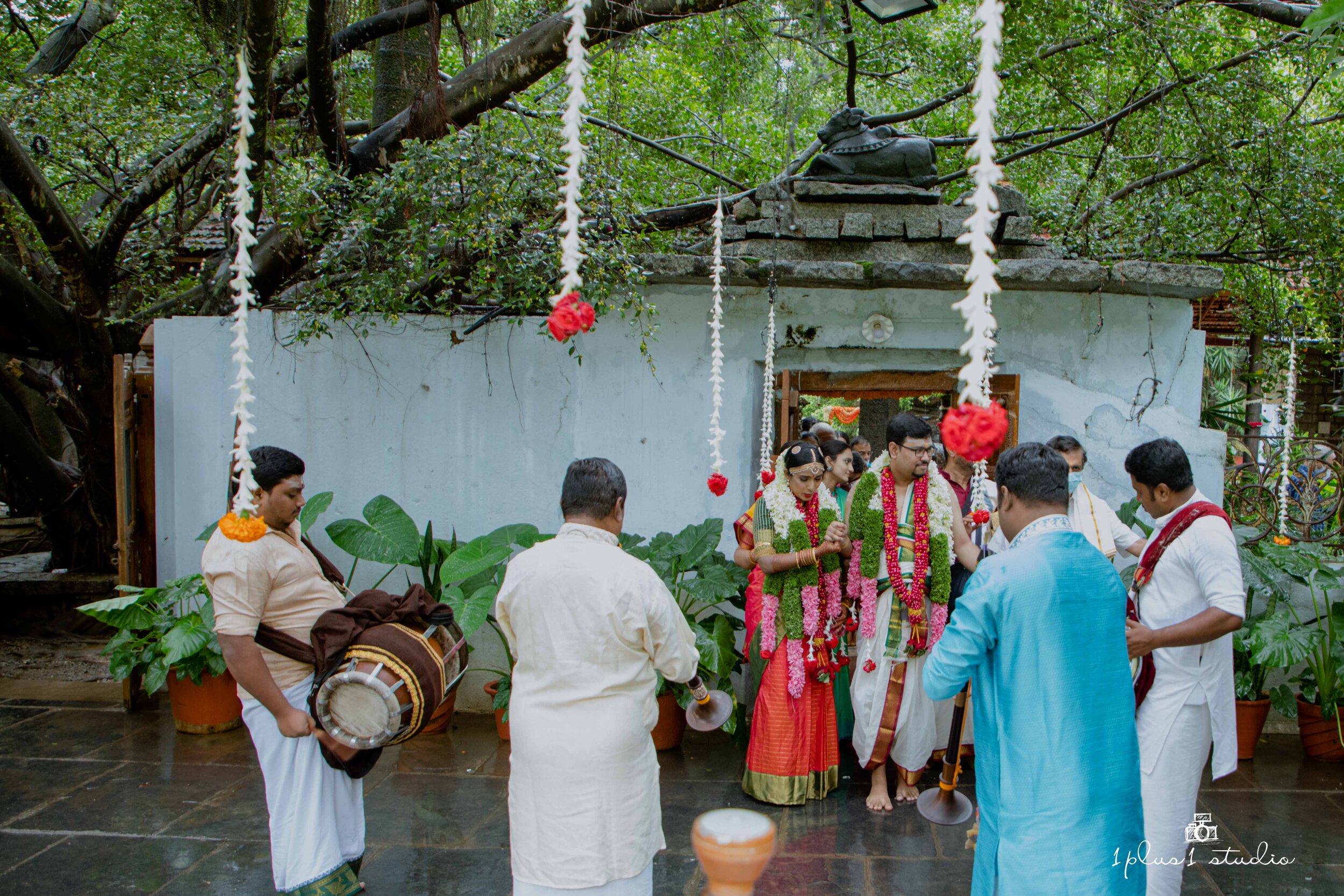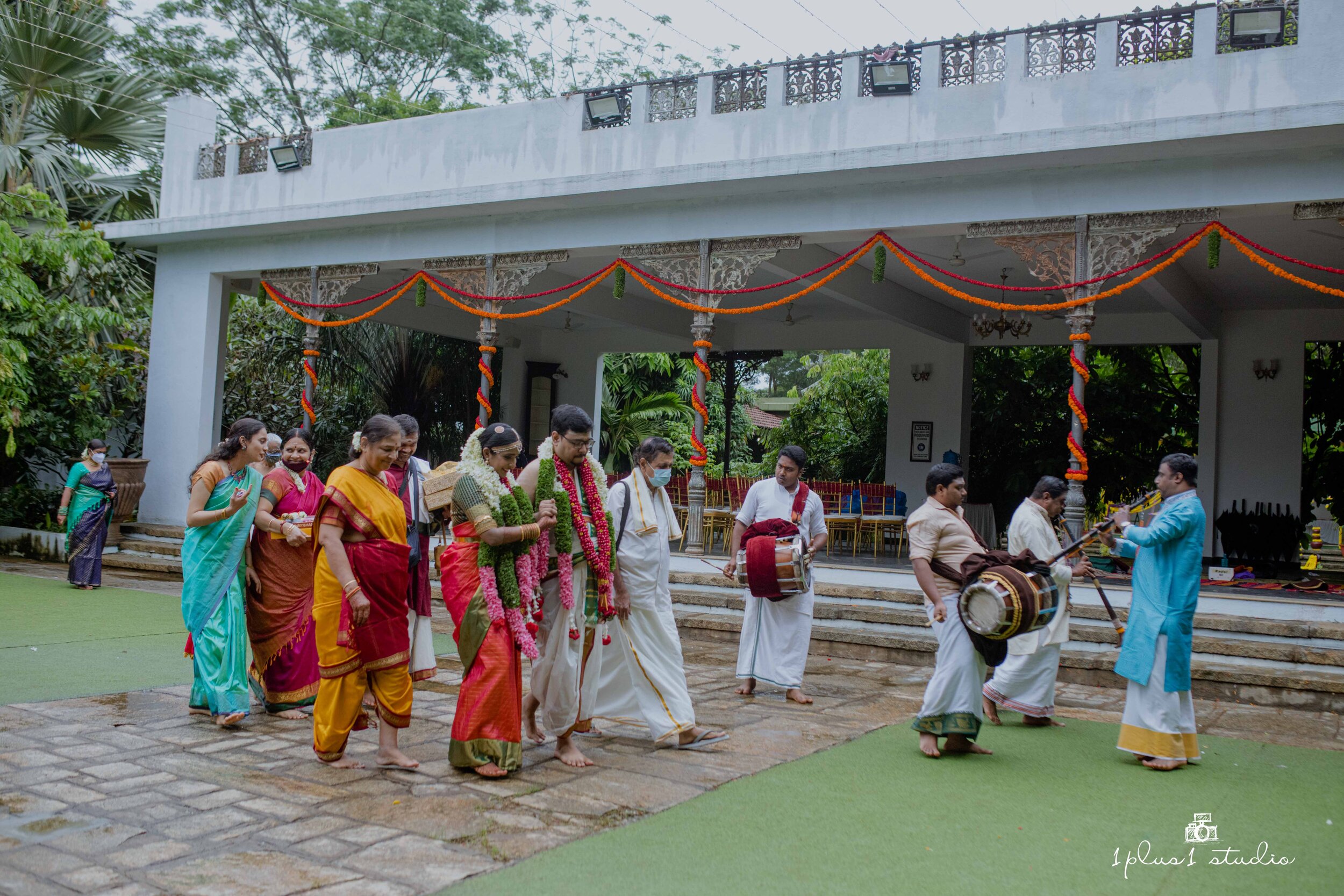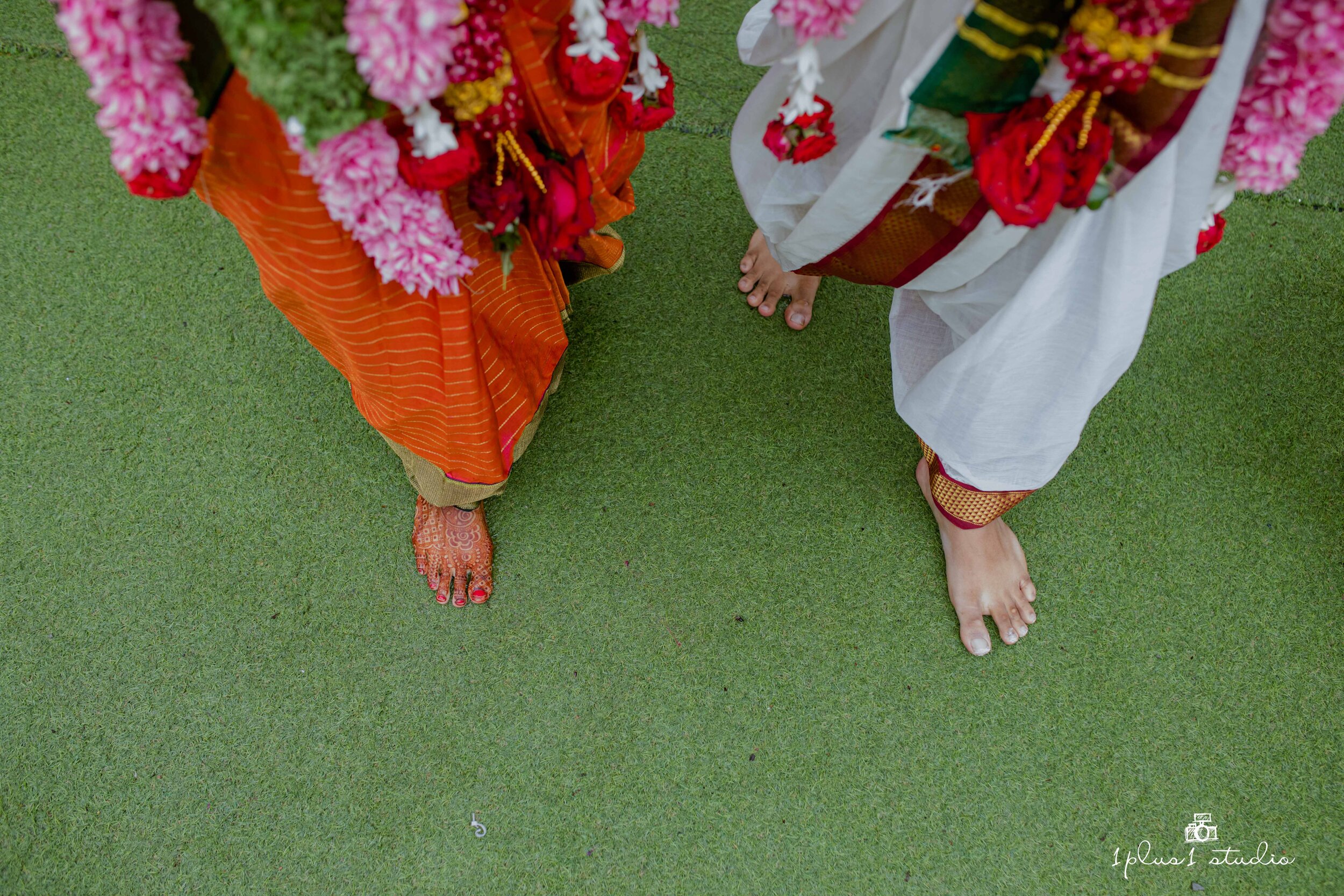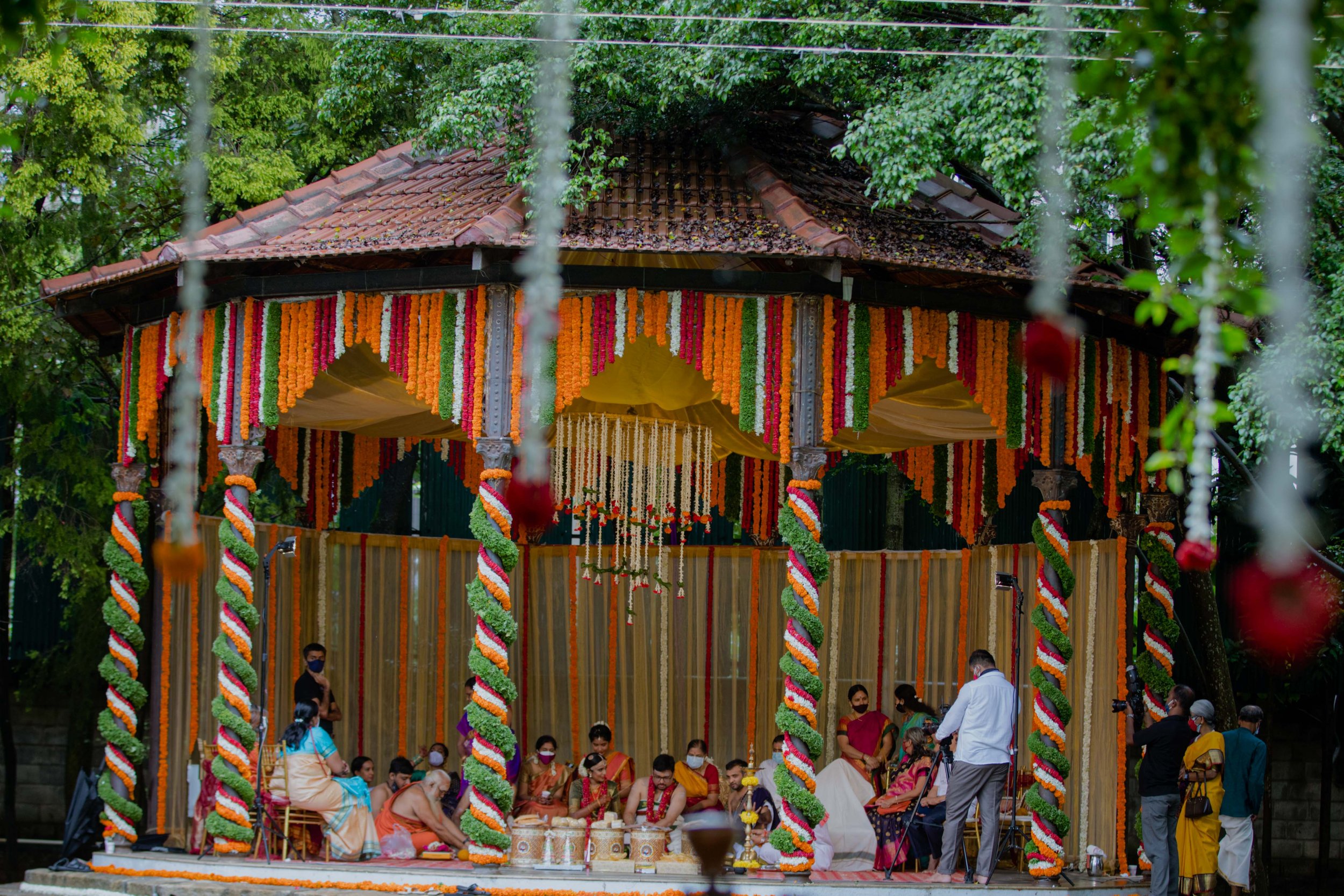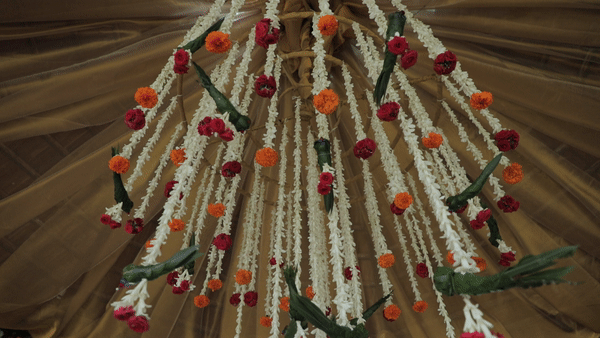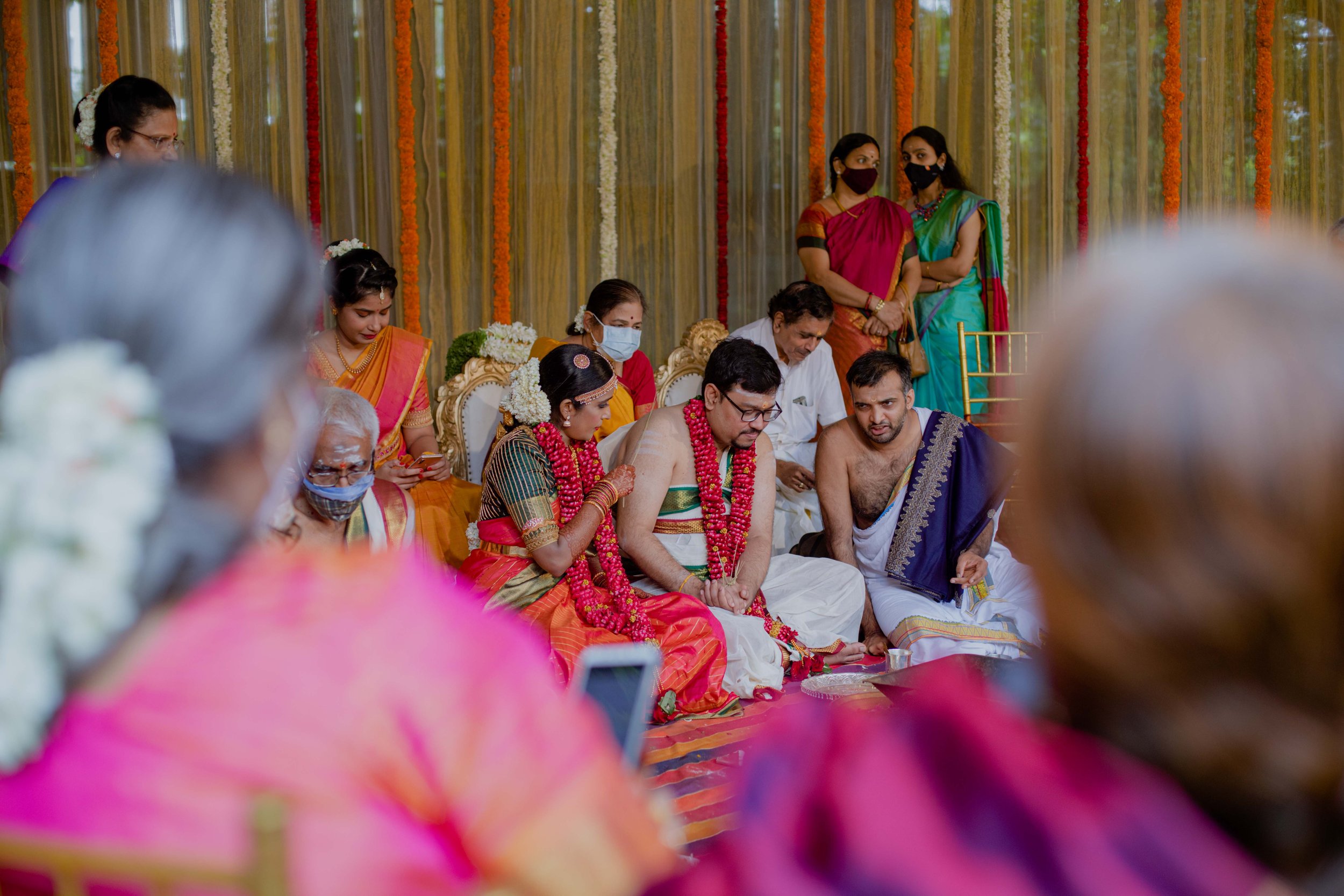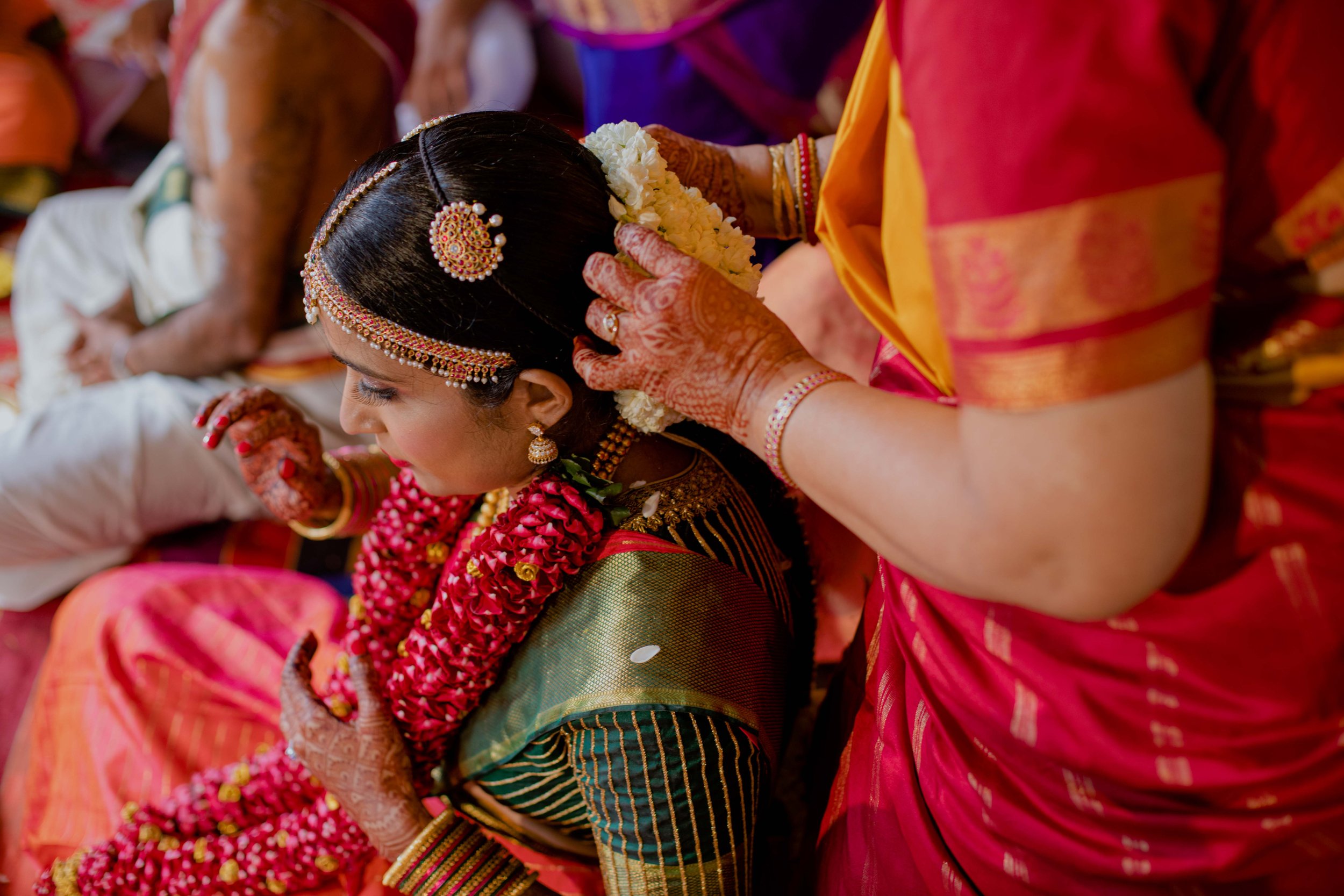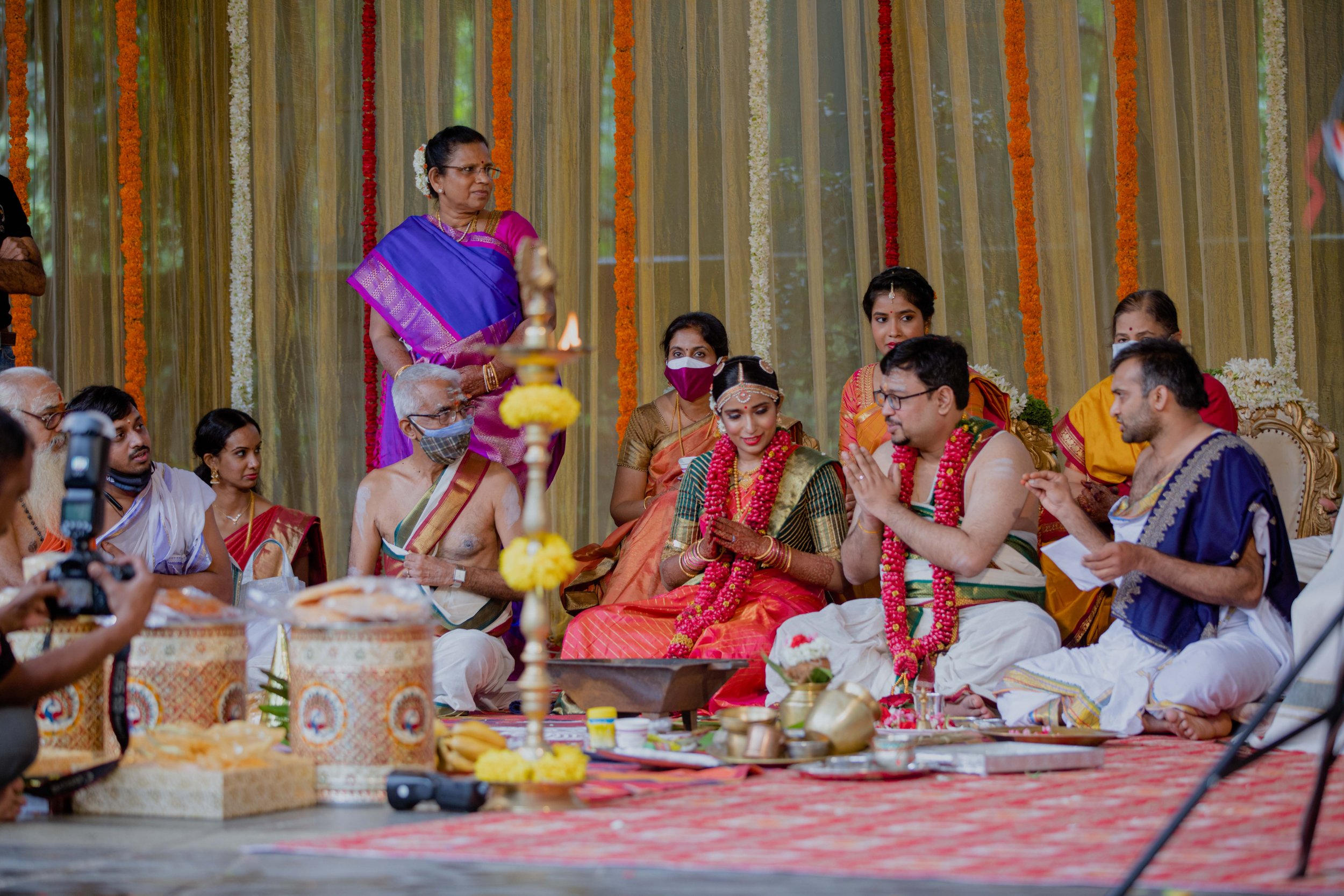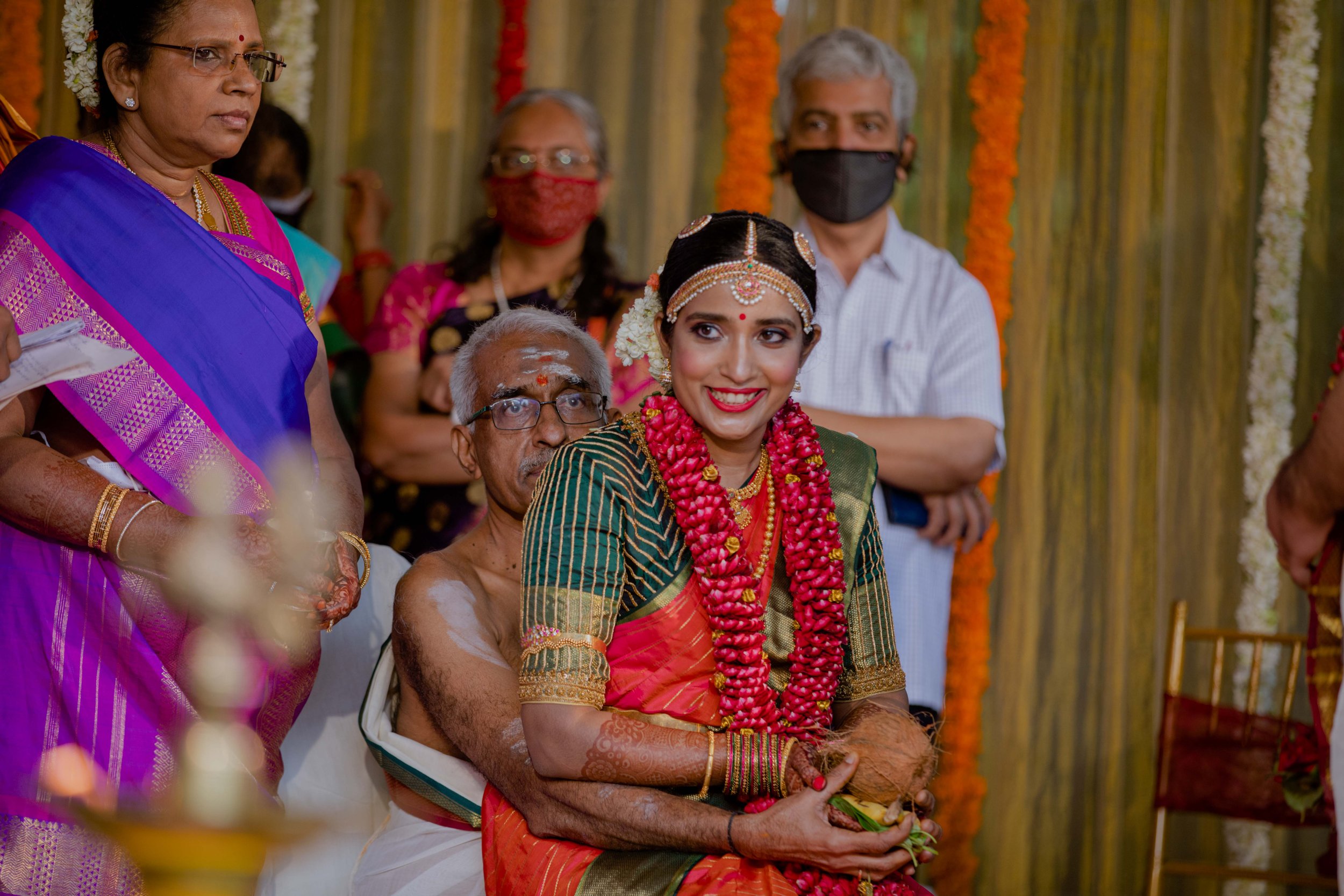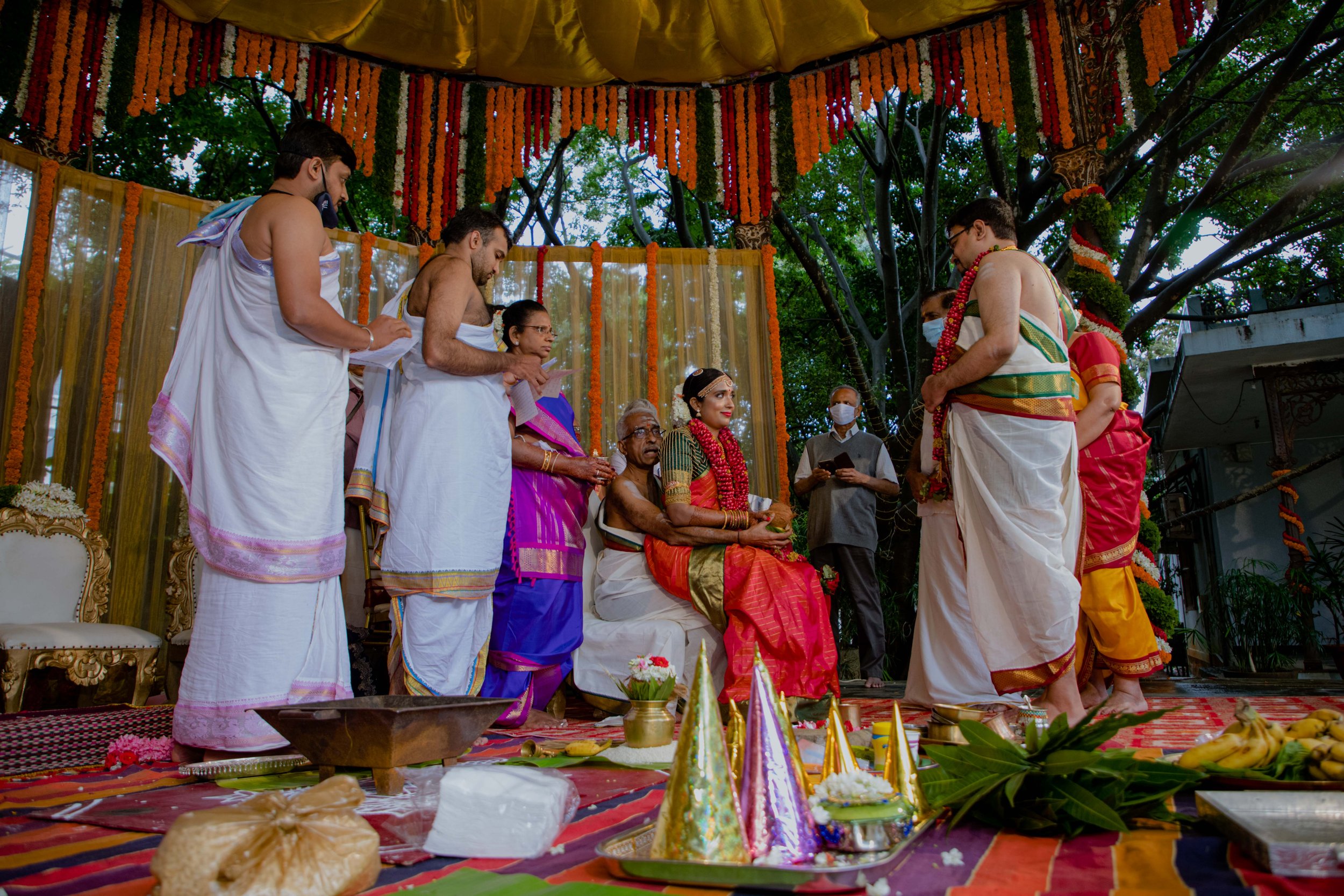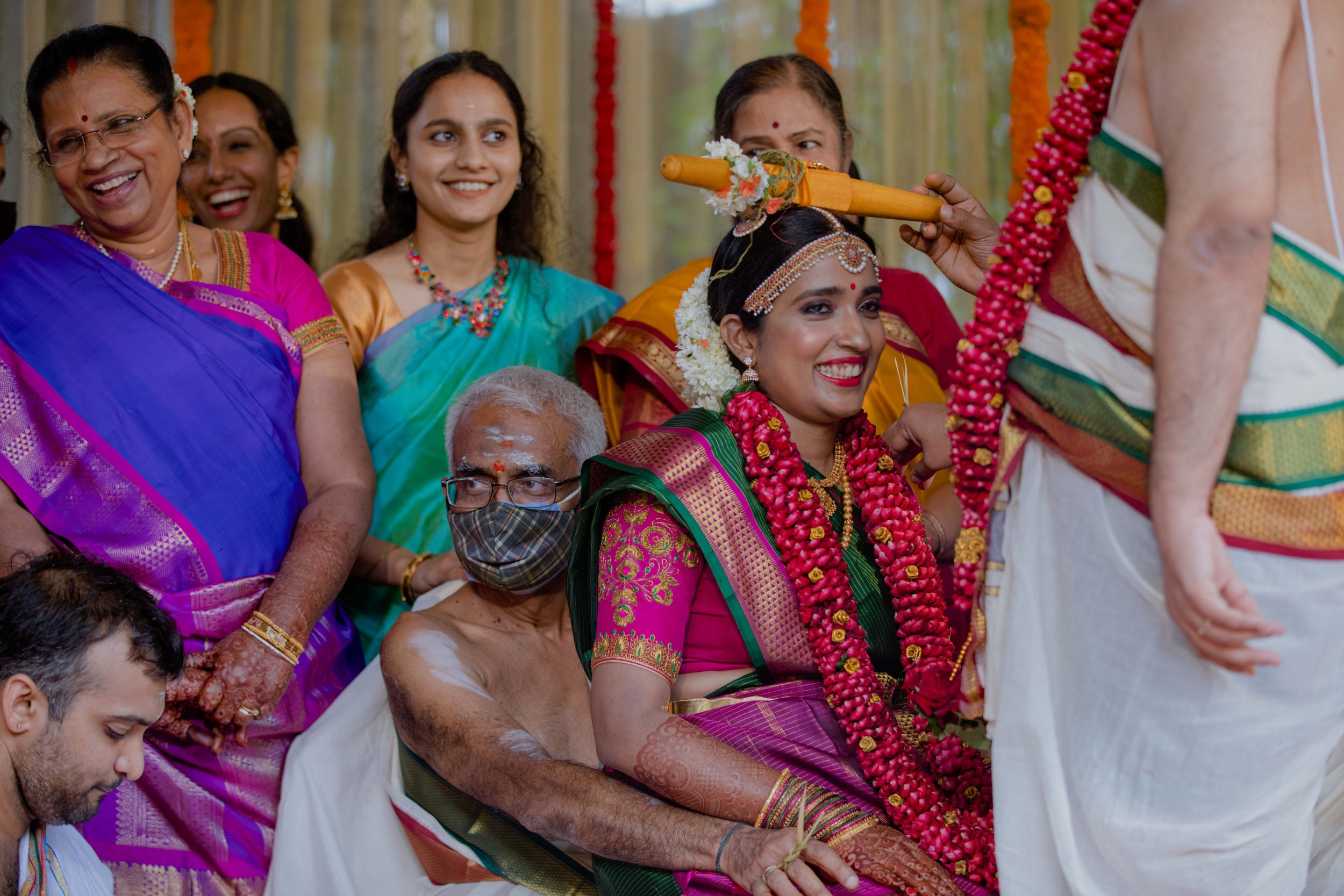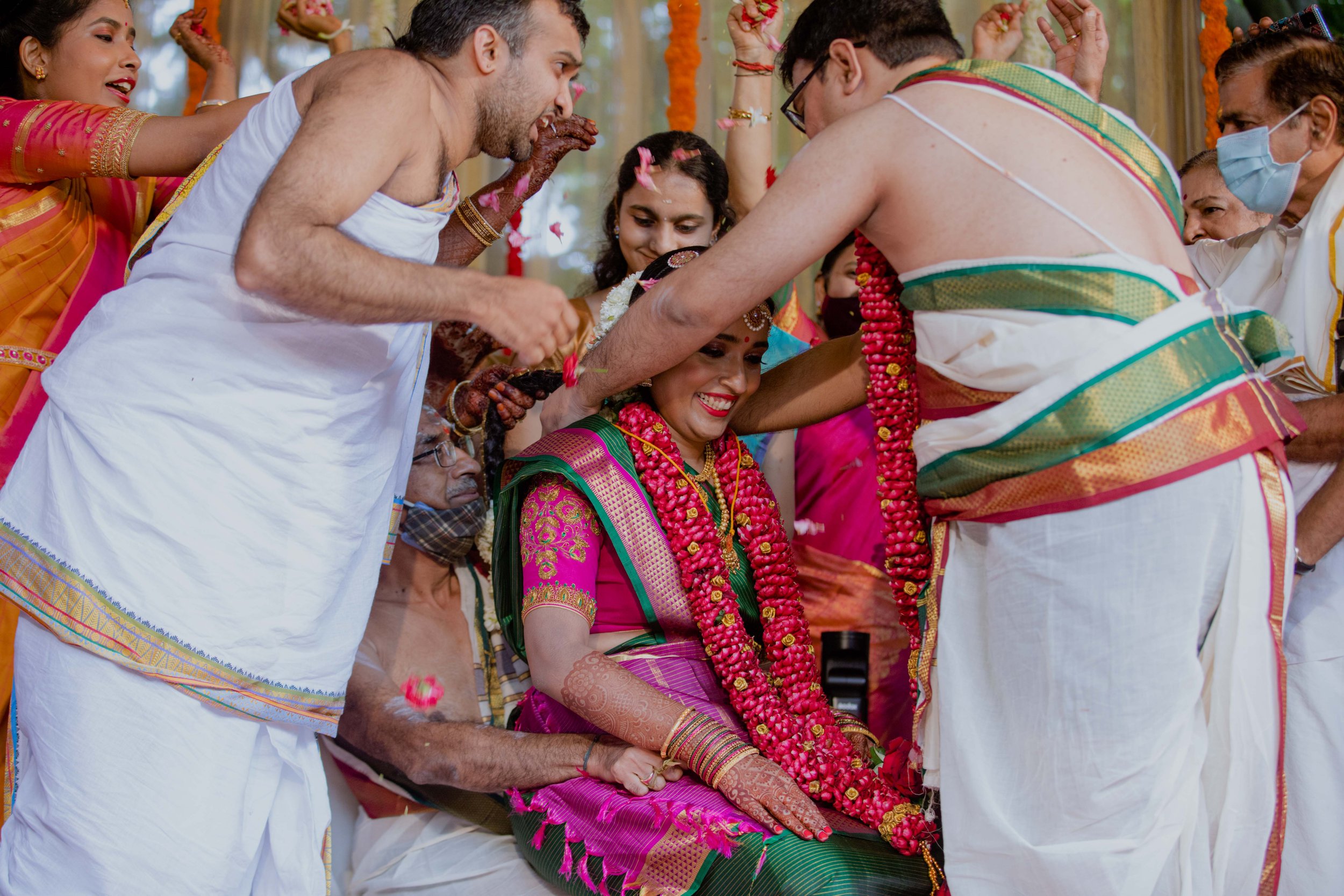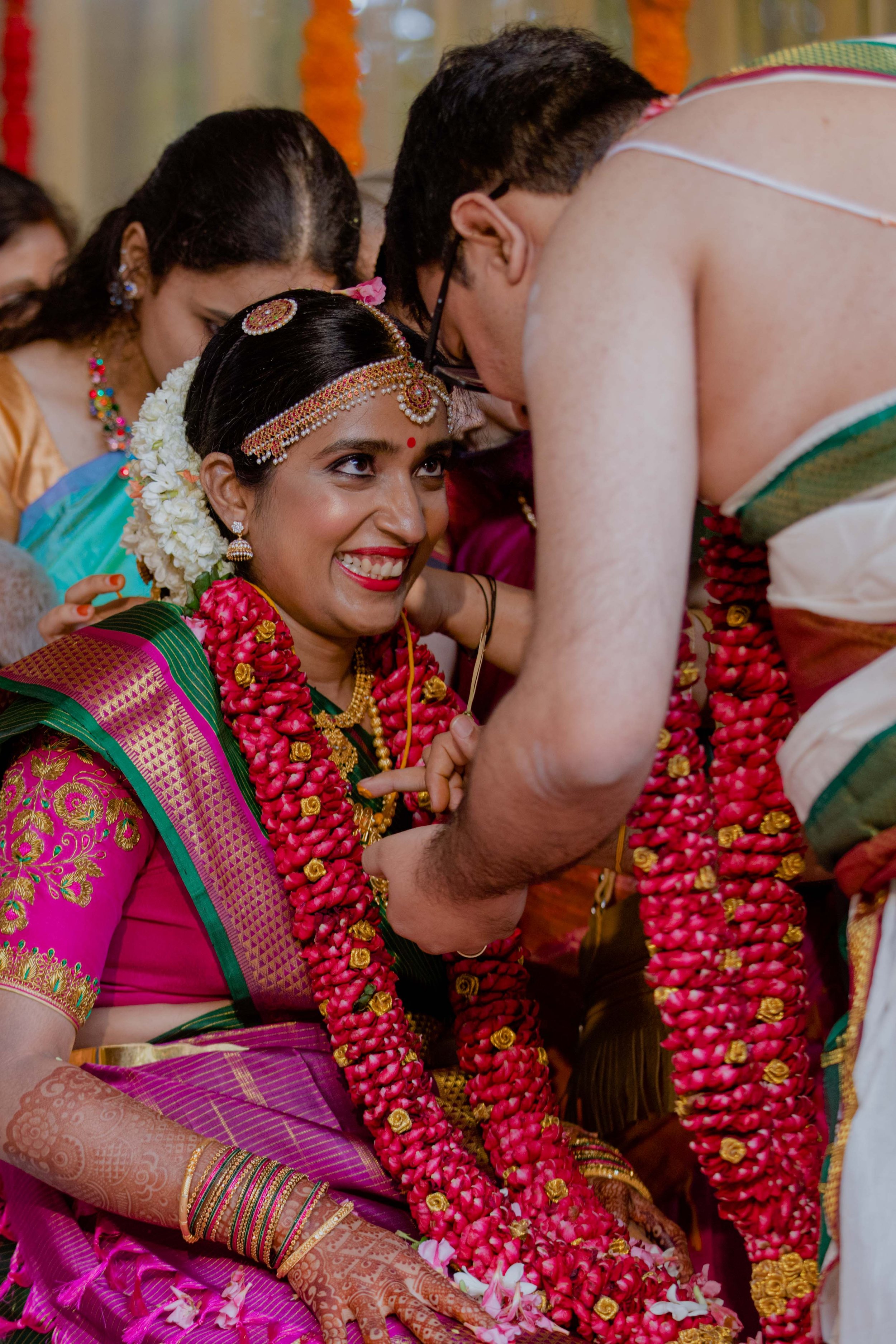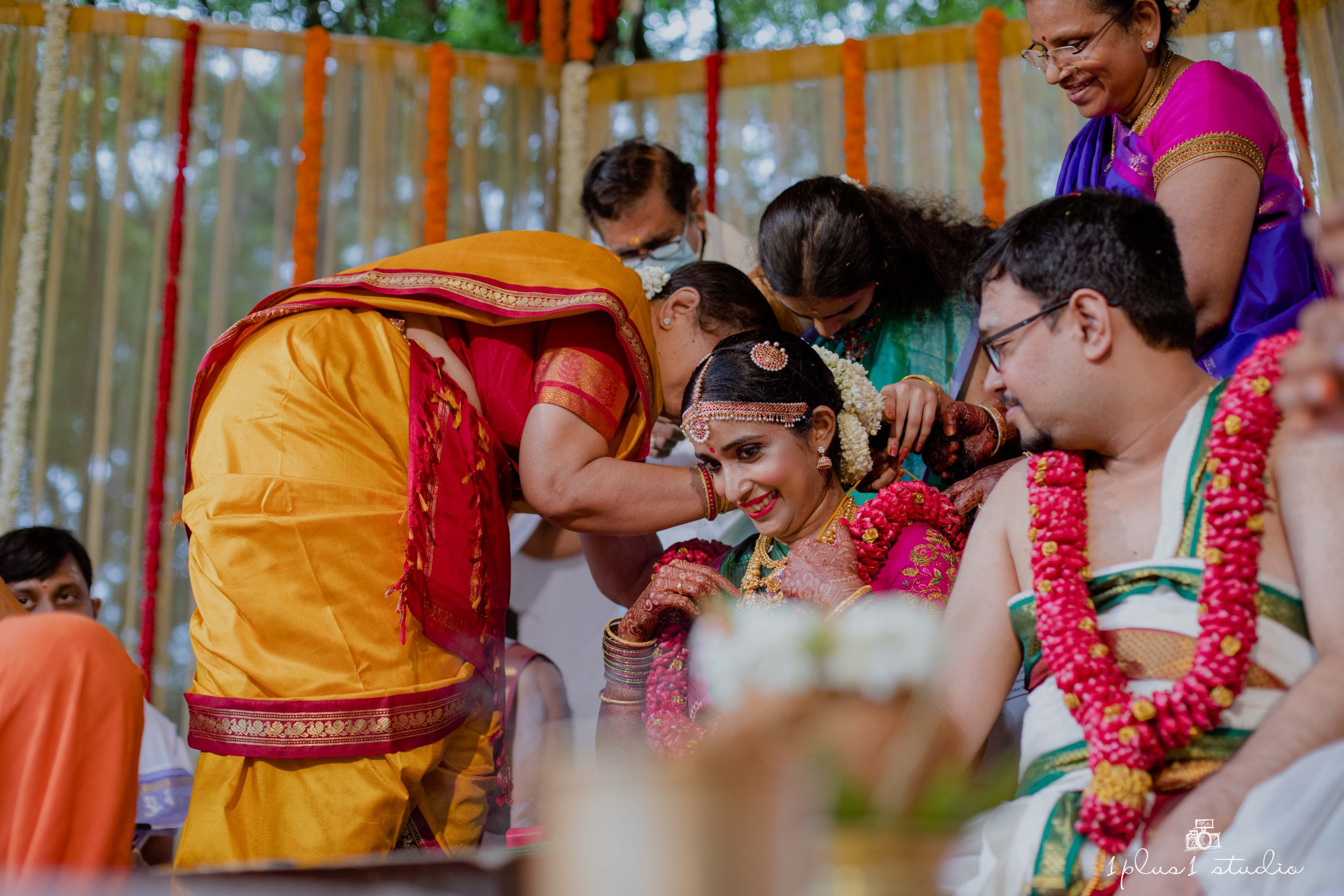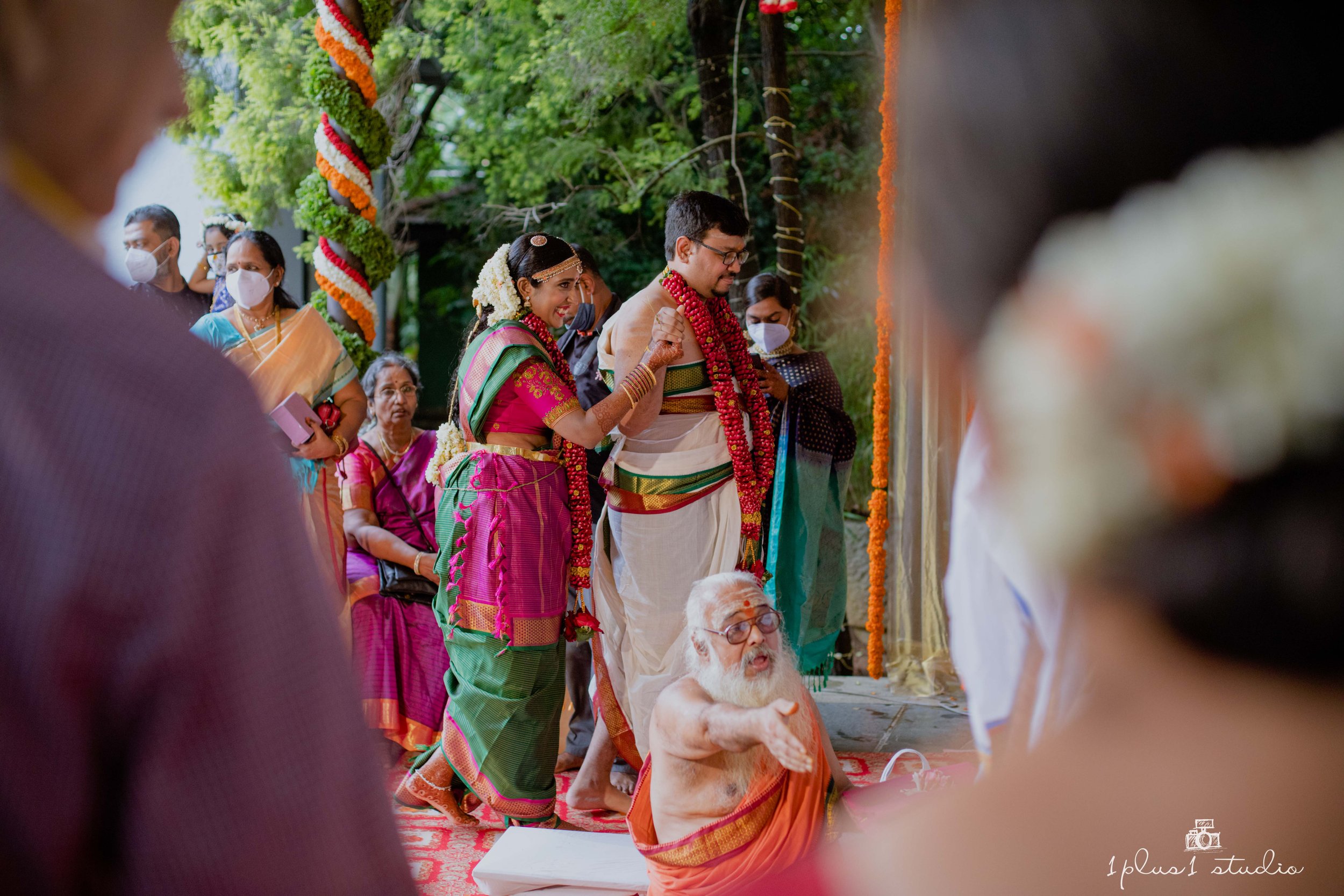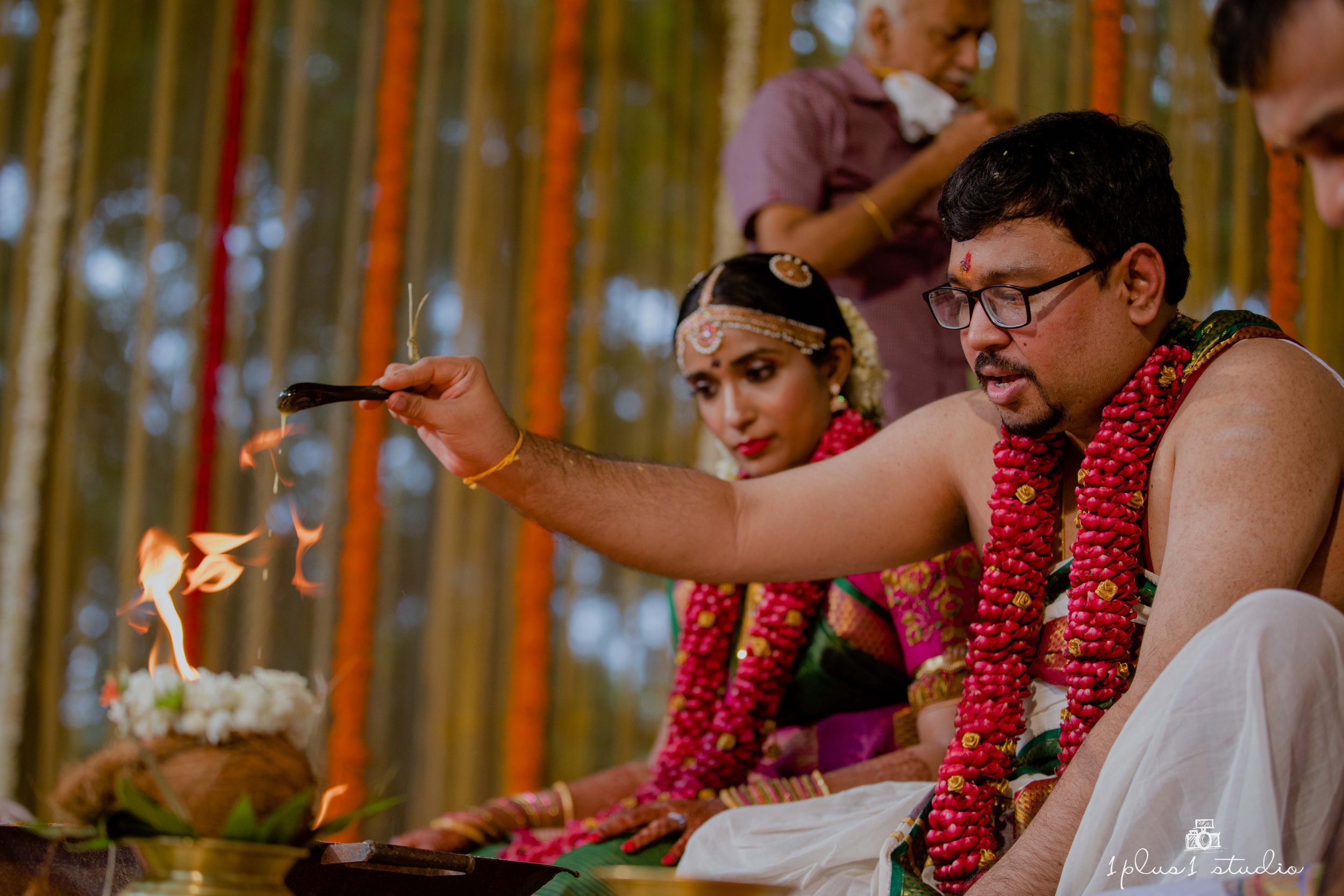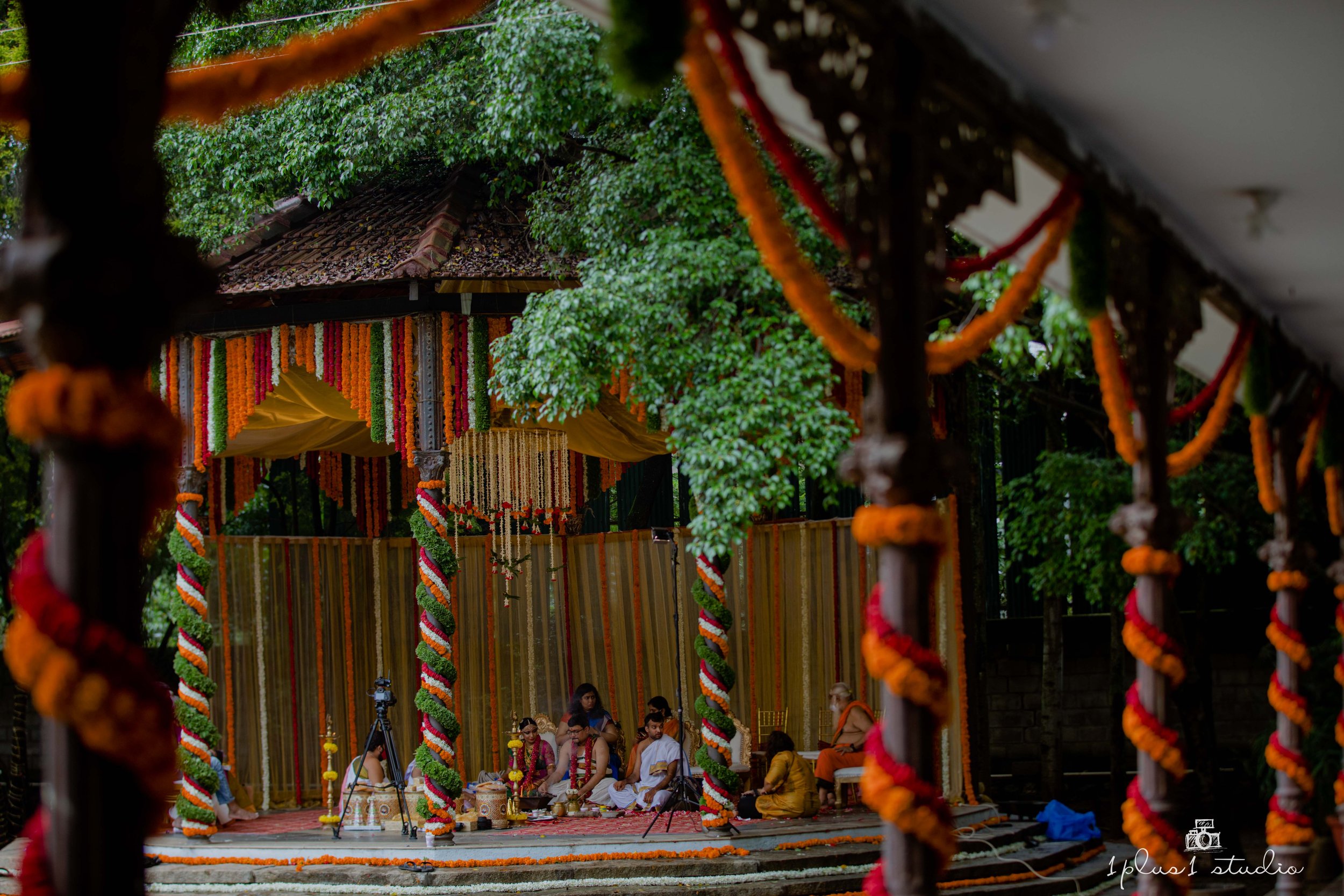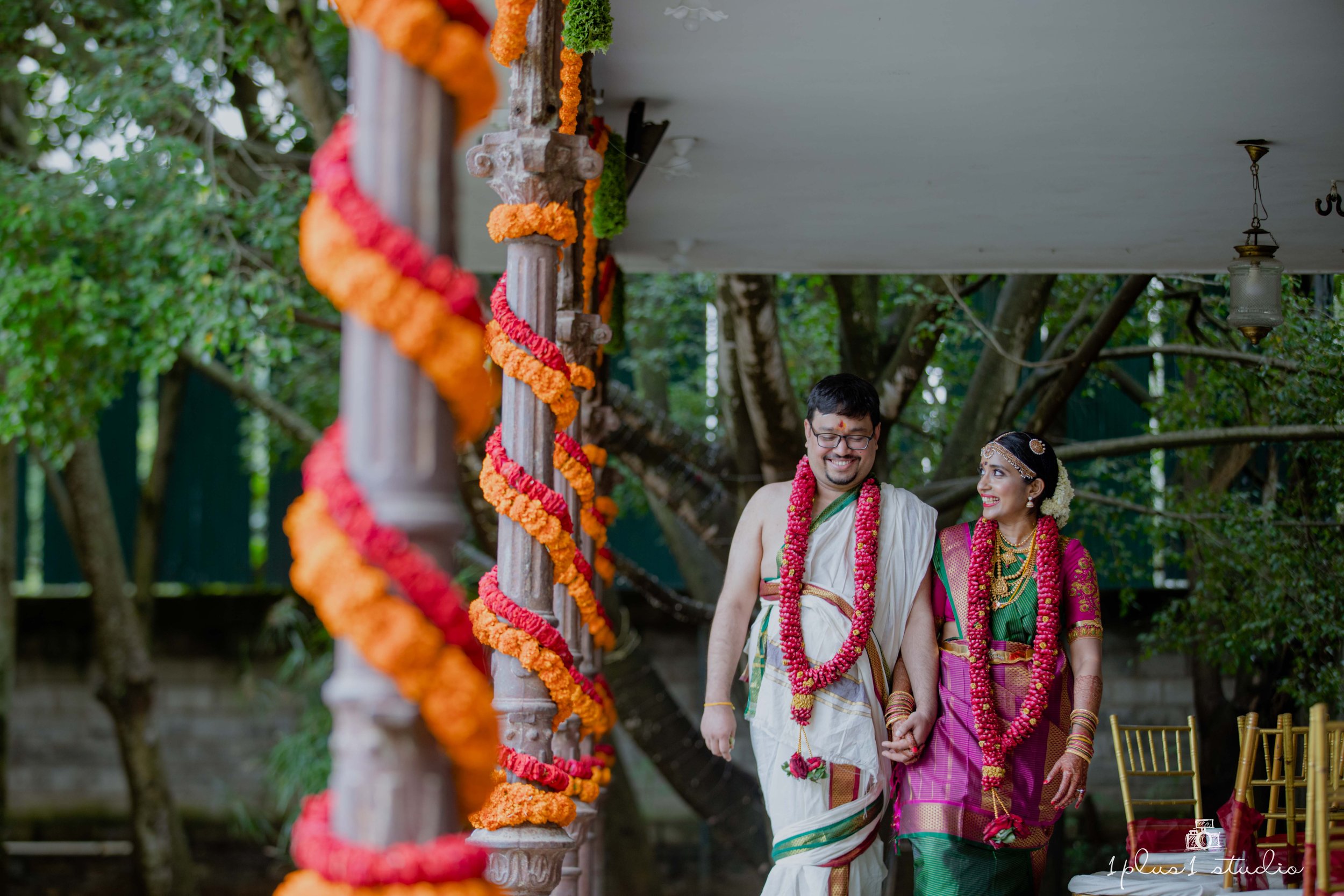Sunitha and Sripath's Tamil Brahmin wedding at Tamarind Tree, Bangalore was an intimate affair, which was fun and informal and yet included all traditional ceremonies.
Tamarind Tree, Bangalore, with its huge trees and stone steps, provided the ideal traditional venue for the ceremony offering a rich visual treat to us as photographers. The décor was also traditional Indian, with a touch of the western aesthetic; the mandap, entryway with the name board, and the seating area were all done up with flower garlands in reds, yellows, and oranges. Brass vessels filled with flowers adorned the stone steps, while marigolds strung in jasmine hung from the tree branches, adding dashes of colour to the monsoon wedding.
Click here for our complete Tambrahm Wedding Guide or our complete Tamarind Tree Bangalore Wedding Guide.
Dressed in kanjeevaram with jasmine on her hair, Sunitha had minimal jewellery on and looked every bit an elegant South Indian bride as she stepped into the venue amidst a mild drizzle. The red of the flowers and the lush greenery in the backdrop seemed to complement the bride's attire. Sripath made his entry in a traditional dhoti tied around his waist, amidst a flurry of guests in multi-coloured kanjeevarams, typical to a Tam Brahm wedding.
Tamil Brahmin weddings have a series of unique and fun rituals, many of which lighten the air and help bring the two families together. One of such is the Kasi Yatra, where the groom leaves the worldly life and take off to Kasi just before entering the mandap. Wearing a pair of traditional slippers and holding a stick, he walks out, and then coaxed by relatives, he returns, and the ceremonies resume. When Sripath started for Kasi Yatra, Sunitha's father and family convinced him not to go for sanyas and offered his daughter in marriage.
Following the Kasi Yatra, Sunitha and Sripath exchanged garlands, lifted up by their relatives amidst nadaswaram music and cheering. The bride and groom then sat on the beautifully decorated Oonjal or swing, where they were blessed by elders and given sweetened drinks and bananas.
The Oonjal is an indispensable part of Tam Brahm wedding, symbolising the togetherness and the life ahead. As the swing goes up and down, it indicates the ups and downs in human life and how together a couple can tide over any situation. As elders sing Oonjal songs, they also perform drishti to ward off evil eyes that had fallen on the couple, if any.
The father of the bride washed the groom's feet. The bride's mother applied kajal in the groom's eyes as part of the ritual. The thali or mangalsutra is tied around the bride's neck by the groom as she sits on her father's lap.
Then Sunitha's dad held her hand and offered it to Sripath. Known as Kanyadaanam, the ceremony is meant to denote that the father is handing over his daughter to the groom to be taken care of well. In the olden days, the brides used to be very young and would fit easily into their father's laps, which was probably the origin of the ceremony, but it is continued today, giving way to a lot of mirth and fun.
Sunitha changed into a gorgeous traditional nine-yard sari for the thali ceremony held at the mandap, which was indeed beautiful to watch, providing us with a multitude of click-worthy moments. The rituals concluded with the couple performing homam together.
Now that the most important ritual was over, the mood lightened, and a series of fun rituals followed. The bride and groom were made to sit on chairs facing away from each other as the guests clapped and cheered. A cake-cutting ceremony for a tiny birthday guest was also part of the agenda of the day. The entire ceremony was informal and intimate, with close family and friends in attendance, adding charm.
We finished with a couple-photoshoot of the bride and the groom, amidst love and laughter and countless memories to cherish.


